#in many ways ava is not the character i resonate with most on this show
Text
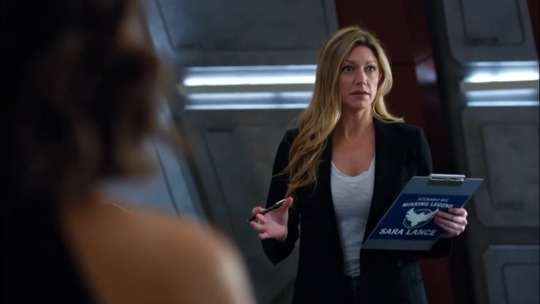
For clarity: please enjoy this screenshot from the new trailer I have taken the liberty of noting that the clipboard reads: Scenario For Missing Legend: Sara Lance.
Please also consider:
This is a generic heading; it’s not missing legend it’s Missing Legend Sara Edition aka part of a series.
Implying the existence of other Missing Legend plans.
This scenario clipboard has a custom-decal, my girl taught herself Illustrator for this.
The real question here is does she keep them all in a binder and then use restickable vinyl clipboard decals for her Lucky Clipboard or does she have individualized clipboards for everyone who might possibly be abducted.
#like bless this mess what a disaster#but also having experienced the pandemic#i do see and appreciate the value of a fancy pen#for making a big thing seem manageable#in many ways ava is not the character i resonate with most on this show#but i see and respect a fellow Day Planner Lesbian#game recognizing game if you will#ava sharpe: most dapper mermaid in all the land#ava sharpe: time nerd#legends of tomorrow#lot spoilers#cw dcu feelings
286 notes
·
View notes
Text
Things ILITW did right:
-The cast. The cast was fucking incredible. They all had their own unique problems and we got to glimpse into their lives by playing as them. Additionally, there wasn’t anyone in the group I didn’t like. Lily was my least favorite but even she was a likable character.
-Dan. Dan doesn’t get a lot of screentime, and even though he’s technically a member of the main gang, he’s more of a side character. But PB still made me fall in love with his storyline. It really resonated with me. He was clearly grappling with the trauma from Jane’s death years and years into the future, but since he was the star football quarterback, he felt he couldn’t show any signs of weakness or ask for help. If he survives the final encounter with Jane, he becomes a trauma counselor, and he seems so much happier and more at ease with himself. I love that for him.
-Jane. It’s already been established that I’m terrible at predicting twists, but finding out that Jane was the monster all along at the end of chapter 14 shocked me to my core. I remember yelling at the revelation, I was so surprised. I was both amazed and appalled that Jane was the cause of all the chaos, violence, and terror throughout the story. Jane was the perfect villain.
-The vibe. The vibe is more creepy (while ILB is just outright scary and goes straight for the fear factor) and I think this book really benefitted from the creepiness rather than forcing sheer terror upon us in the first book.
-The lore. ‘Nuff said.
-The pets! We get a baby crow FOR FREE, can babysit Hilda (good fluffy dog!), can get an adorable black kitten, AND can even get a vine monster pet!
-The love interests. In my opinion, all the love interests are fairly equal to each other (except Andy, who blows the rest of them away because he is FANTASTIC). I’m pretty sure most of them get equal amounts of scenes and the nerve boosts make them OP as hell.
-The shed. I loved getting to go to the shed in the chapters for weapons, the lore documents, the pets, clues, and what have you. It was nice that it actually served a role in the story.
-The outfits. There wasn’t a single outfit in MC’s closet I didn’t like. And, while I’m on the topic of the outfits, I also appreciate the lack of outfits. There are only three times in the story where we’re presented with the option to buy outfits. The beginning, before Britney’s party, and before homecoming. That’s it. The clothes and outfits aren’t constantly hawked at us for purchase, unlike...other stories.
-The cast deaths. This is a little morbid, but I thought the ways the main cast died were honestly kind of cool, and I liked how some of their causes of death also reflected key points of the story. Ava being toyed with and flung around to her death like how she used her powers, Andy being torn apart from the inside by spiders, Lily being picked apart by birds, it was morbid and creepy and gross and I loved it. The art team drawing the cast’s dead bodies at the end for maximum shock impact was also a nice touch, and I kinda wish they did that for ILB.
-The nerve. I think the nerve loss/gain was pretty on-point in this book. Nerve loss was kind of big, I will admit, but it was usually pretty easy to get lost nerve back. On my first playthrough with no diamond purchases, not a single character died.
-The memorial. Seeing all the different dialogue outcomes when the entire group is dead or when only one person is dead, or when Noah survives or MC survives, there was obviously a lot of thought put into the memorial. It was very heartbreaking and very well done.
-The music. What a bop.
-The plot. The plot was very well paced, and every chapter contributed pretty evenly to the plot. In other words, filler in this book was at an all-time low. The only chapter that was kind of filler-y was the homecoming chapter, but that was to trick us into thinking the fight was over.
-The romance. As I’ve mentioned before, It Lives has a very, very high stakes plot. This inevitably led to the romance/dating features taking a backseat to the main plot, which of course, was necessary. It doesn’t make sense having romance as the main focus when a homicidal shadow monster is hunting you and your friends down, after all.
-The mental health and trauma mentions. Overall, mental health and trauma can be kind of tricky to talk about, and need to be handled very carefully. I felt that ILITW was very respectful and careful in that regard, and mentions of mental health were handled as realistically as they could be in a supernatural horror story.
Things ILITW really could’ve improved:
-Lily, Ava, and MC. Lily, Ava, and MC’s storylines felt considerably weaker than the rest of the cast. The storylines just felt...lacking. All three were bullied by Jocelyn, Britney, and Cody, though Lily and MC got the brunt of it. Ava’s storyline mainly focused on gaining and losing her powers, which wrapped itself up within 3 or 4 chapters. The bullying plot ended after chapter 7 when Cody died and wasn’t really mentioned again, and Lily’s storyline shifted its focus onto her relationship with Britney. MC felt more like a self-insert than an actual character throughout most of the story (ILB MC definitely felt like more of a character). Not to say they were a bad character, but they were definitely lacking.
-The nerve checks. Unlike ILB, the ILITW nerve checks didn’t really do anything. At least, not until the final game with Jane. In ILB, you paid the price if your friends didn’t pass the nerve checks spread throughout the conflicts. If Tom fails his nerve check, your MC loses a finger, nerve, and Tom suffers a breakdown. Danni betrays the group if she doesn’t pass hers. Imogen’s isn’t terribly high stakes, but she does lose her connection to the power if she doesn’t pass the nerve check. Parker accidentally shoots Kelley and abandons the group forever if he fails his. Failing the first group nerve check will cause Tom to snap and cause a massive argument. Failing the second group nerve check will result in the death of whoever has the lowest nerve. In ILITW, nerve checks simply yield different dialogue, and at the end, determine whether a character will live or die, though this seems to be partially randomized.
-The flashbacks. Maybe it’s just me, but I felt like there were too many flashbacks, and that some of them could’ve been lumped together.
-The side characters. Personally, I find that the side characters in stories are the most interesting. Unfortunately, most of the side characters didn’t get a lot of development and were used simply as plot devices or character development for the main cast. Jocelyn, Britney, Cody, and even Ben could’ve been fleshed out much more. Tom was also severely lacking in development in ILITW, but he was upgraded to a main cast member and love interest in ILB, so that problem solved itself.
#choices stories you play#playchoices#choices stories we play#pixelberry#pixelberry studios#playchoices fandom#choices stories you play fandom#choices stories we play fandom#choices it lives in the woods#it lives in the woods#choices ilitw#choice ilitw#ilitw#it lives beneath chapter 14#dan pierce#daniel pierce#jane marshall#douglas redfield
73 notes
·
View notes
Text
bts tag
i got tagged by @houseofarmanto, thank you so much ava 💖
When did you first get into bts? october 26, 2019
why or/and how did you get into bts: so, funny story. i knew about bts for like, a very very veeeery long time, because i’ve been casually listening to kpop since 2009 or so, but i never really checked them out. like i knew they existed but i never actually listened to them. my best friend has been an army since 2018-ish? or something? and while she sometimes mentioned them it was never enough to completely catch my interest. she made me listen to bwl once and i was like ‘yeah nice but really not my style’ and that was about it. i thought.
then, a few days before their ly:sy the final concert in seoul she came to me like “so this concert of bts will be streamed and i bought access to it, do you want to watch with me? :)” and i was like “sure, why not! :)” and well.
we met up, concert begins, and i’m like ‘oh shit these songs actually slap’ and then i started looking up who is who while the concert was still going on and my brain kinda thought “cool, we could use a new hyperfixation anyway” and then i totally fell down that rabbit hole and a week later boom! bts super fan lum emerged. and i’m happy about it. 💖
first bts song: technically bwl, but we pretend it’s dionysus because that was the first song they played during the concert
favorite bts song?: oh there are so many. Zero O’Clock. Ugh!. Black Swan. Not Today. Outro:Tear. Singularity. Spring Day. First Love. and so many more. If I had to just pick one it would probably be Zero O’Clock though. Excluding all the solo’s and unit songs it’d be Black Swan and Spring Day.
first official comeback: black swan
favorite bts era: mots:7 and ynwa
bias(s): namjoon, yoongi and taehyung
bias wrecker: all of them, i even get bias wrecked by my biases (most recent evidence: me losing my shit because namjoon showed us all he has arms)
first concert: online ly:sy the final, offline sadly NONE. BUT THAT WILL CHANGE.
do you own any merch: i bought an army bomb a while ago but hasn’t arrived yet </3 my biggest wish is getting a rj plushie though.
what member would you say you are most like? most definitely yoongi. his character is very similar to mine, and all of the hobbies he seems to have are either hobbies i also have or hobbies i want to have. and the way he seems to see the world just deeply resonates with me. (that being said, i also relate to namjoon and taehyung a lot, but especially with their interest in the arts and nature)
i also deeply relate to jungkook because i, too, look at namjoon as if he had hung the moon
favourite bts lyrics:
from zero o’clock:
i gather my hands and pray
that I will laugh a little more tomorrow
for me
that it will be a little better
for me
when this song comes to an end,
a new song will begin
that I will be a little happier, yeah
from black swan:
if this can no longer make me cry
if this can no longer make my heart flutter
perhaps, this will be how I die once
from spring day:
i try blowing out you who aches my heart
like smoke, like white smoke
though I say that I’ll erase you,
i can’t actually let you go yet
from the truth untold:
i can’t show you my miserable self,
so, yet again, I wear a mask and go to meet you
from outro:tear
you’re my beginning and end that is all
my meeting and my parting
that was all
from now on, fear will repeat itself
also all of the lyrics from trivia:love
favourite music video: spring day, black swan, run and mic drop
1 thing you love about bts: can everything be an answer? no, if it has to be one thing i’m going with the obvious one, their music and the message they try to spread through it. a lot of their songs help me get through life day after day, and for that i’ll be always grateful.
and to finish off wholesomely, do you have a favourite bts group photo, if so share it here (if not, what is your fav concept photoshoot and share picture):

i tag @everythingoes, @chaylani, @varietae and @yoong02. as always, feel free to ignore :>
#no one will read this because this got way too long#why do i always feel the need to write essays#ANYWAY thanks for tagging me ava i appreciate it!!#lum.txt#tag game
7 notes
·
View notes
Text
TV I Liked In 2019
Every year I reflect on the pop culture I enjoyed and put it in some sort of order.
The era of “peak TV” has never been more apparent to me than the past year. I am very aware of the many shows I have not seen (don’t have Amazon Prime, for example), and yet I expanded my list from a top 10 to top 15 and still had to leave out A LOT of stuff I really liked! These picks include my legitimate favorites, ranging from truly important looks at the criminal justice system to ensemble comedies that I couldn’t wait to return to. In another year I may have been able to include the latest seasons of Barry, Stranger Things, Queer Eye, Bojack Horseman, Glow, or the finale seasons of Legion, A Series of Unfortunate Events, Veep, Silicon Valley and The Deuce, all of which I’d still recommend. But these stood out even more.
14 (tie). Chernobyl (HBO) / The Hot Zone (National Geographic)
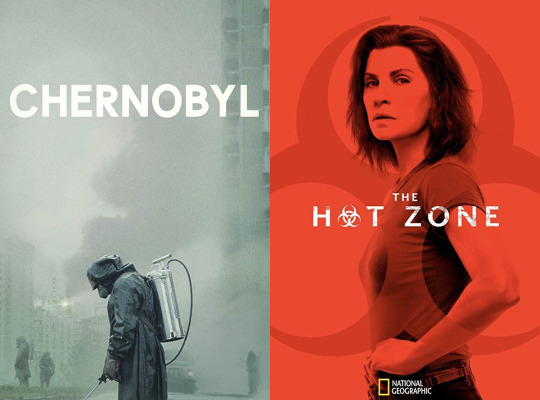
Two limited series focusing on real-life disasters in the 1980s: the meltdown of the Chernobyl nuclear power plant and an Ebola outbreak outside of Washington DC. Chernobyl is an incredibly harrowing account of humanity’s inability to believe things that don’t mesh with their interpretations of reality and the destructive power of lies and cover-ups. The Hot Zone adapts the non-fiction Richard Preston book, a revealing look at pandemics, the power of fear and human resolve. Taken together, they raise interesting questions about governmental gatekeeping, professional competence and personal sacrifice.
13. Mindhunter: Season 2 (Netflix)
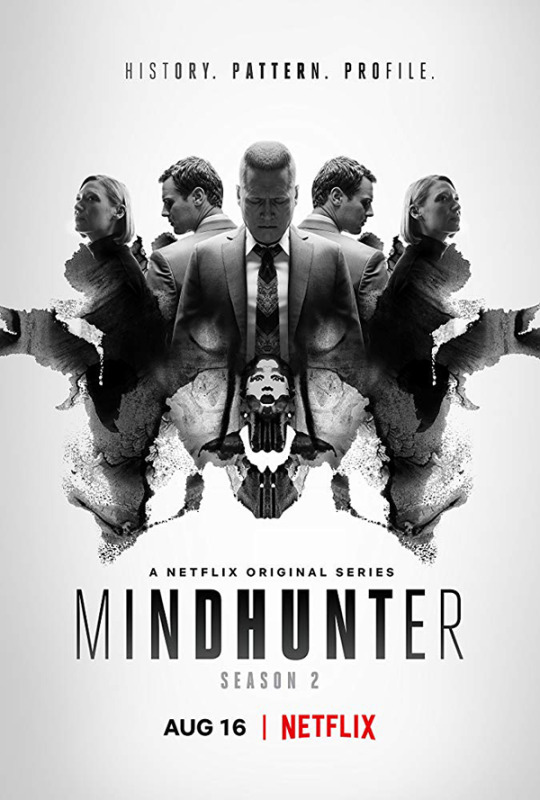
Joe Penhall and David Fincher’s look at the early days of the FBI’s criminal profiling department goes broader and deeper in its second season. There are still chilling interviews with incarcerated serial killers and criminal minds (including Charles Manson this time out), but the season really revolves around the Atlanta child murders. This focus provides a compelling look at who the justice system helps and who it ignores, and the investigative – and bureaucratic – work it takes to put together a case.
10 (tie). A.P. Bio: Season 2 (NBC) / The Last O.G.: Season 2 (TBS) / Schitt’s Creek: Season 5 (Pop)
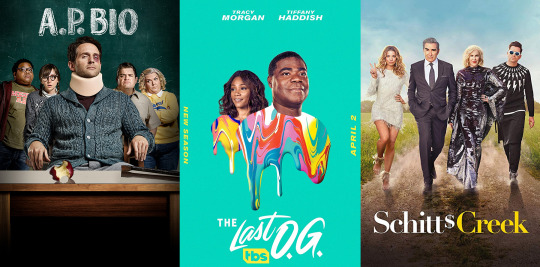
Three great hangout comedies that really came into their own in their most recent seasons. A.P. Bio transcended its first-season preoccupation with revenge and leaned into its fantastic supporting cast – one of the best comedic ensembles around – to become a show I loved spending time with each week. (Thank goodness it’s coming back via NBC’s upcoming “Peacock” service.) The Last O.G. has had a lot on its mind since it began, but its second season covers privilege and the opportunity gap among other issues, ending with a note-perfect homage to Spike Lee’s Do The Right Thing, making it an unexpectedly resonant comedy. Schitt’s Creek is obviously having a moment right now, and Season 5 (the first season I watched as it aired) was perhaps its best yet. While the whole cast is great, as a big fan of Best In Show and A Mighty Wind, I love seeing Eugene Levy and Catherine O’Hara share the screen again.
9. Crashing: Season 3 (HBO)
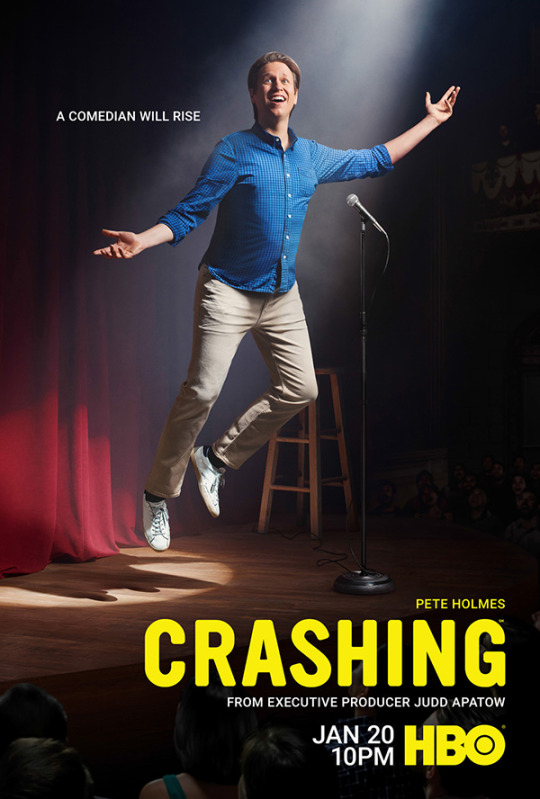
The first two seasons of Pete Holmes’ show made my list in previous years so I’d be remiss not to include the final one, which may be its finest. Pete spends the season making a lot of mistakes – saying yes to things (gigs, relationships) that he probably shouldn’t – and although they provide growth, he doesn’t come across as the “good guy” in how he deals with all of them. This adds additional nuance to the show, questioning its straight white male protagonist’s actions rather than merely rewarding him for following his passions, while still leading to an uplifting and fitting finale.
8. Unbreakable Kimmy Schmidt: Season 4 (Netflix)
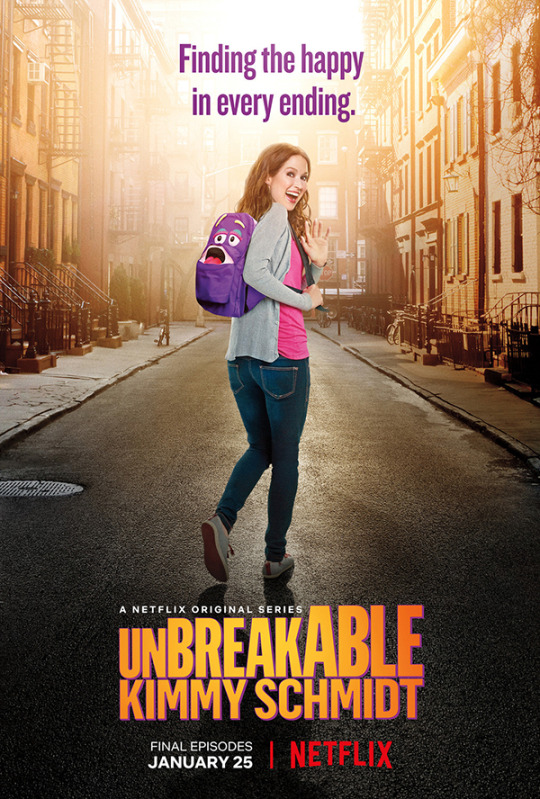
Netflix split the final season of Kimmy Schmidt into two parts, so technically only the final six episodes premiered in 2019. Those alone warrant a spot on the list, as the show concluded by following its idiosyncratic bliss to the end. The final group of episodes includes a (pre-movie) takedown of Cats, a Sliding Doors homage and an unexpectedly moving series finale. If this one fell off your radar a few years ago, it’s worth revisiting and seeing through.
7. What We Do In The Shadows: Season 1 (FX)

Based on the horror-comedy film of the same name, this series follows a different crew of vampires who live together on Staten Island. I was initially skeptical because I love the movie and couldn’t see how a television version could do anything but dilute its charms. On the contrary, the show broadens the universe in hilarious ways by introducing characters like “energy vampire” Colin Robinson and the incredible Vampiric Council (with so many incredible cameos!). The core actors are all wonderful, but the MVP has to be Matt Berry’s louche and libidinous Laszlo whose line readings are simply hysterical.
6. Les Misérables (BBC/PBS)
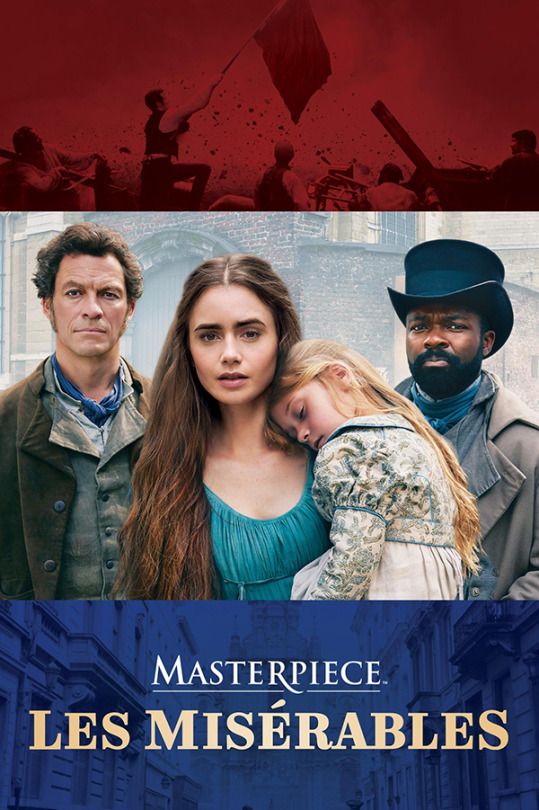
Although it aired in the UK in 2018, the BBC/PBS production of Victor Hugo’s epic didn’t grace American screens until early 2019 so I’m including it here. I am a big fan of the musical adaptation and find it quite successful at cramming so much story into a three-hour runtime, though it obviously has limits to how much of the source material it can explore. This (non-musical) adaptation’s six episodes allow for more of Hugo’s tale of forgiveness versus retribution to live and breathe. The terrific cast includes Dominic West as Jean Valjean and David Oyelowo as Inspector Javert, as well as Lily Collins as Fantine whose backstory is more fully realized here than the format of the stage show allows.
5. Our Planet (Netflix)
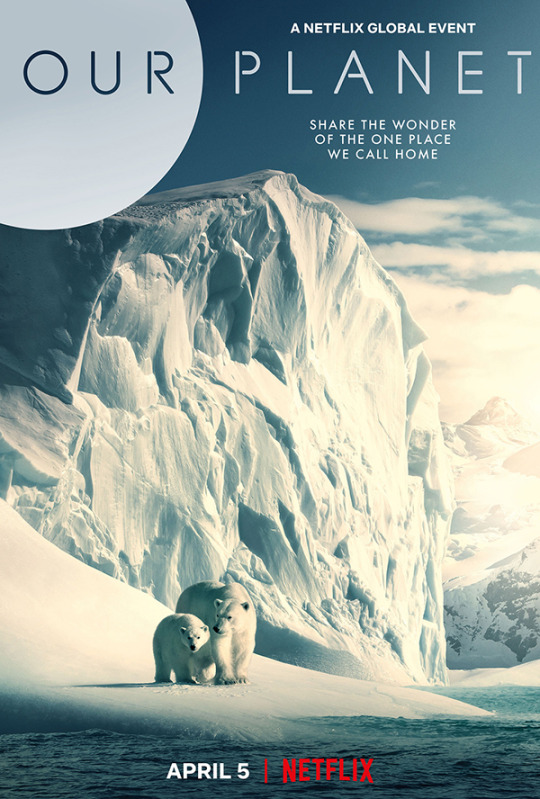
Essentially a sequel to the Planet Earth documentaries, with the same production team and David Attenborough narration, this Netflix series presents another stunning collection of nature footage that showcases the incredible diversity and beauty of animal life on Earth. Each episode includes a haunting reminder of man’s impact on the featured habitats and serves as a rallying cry in the fight against climate change.
4. The Good Place: Seasons 3-4 (NBC)
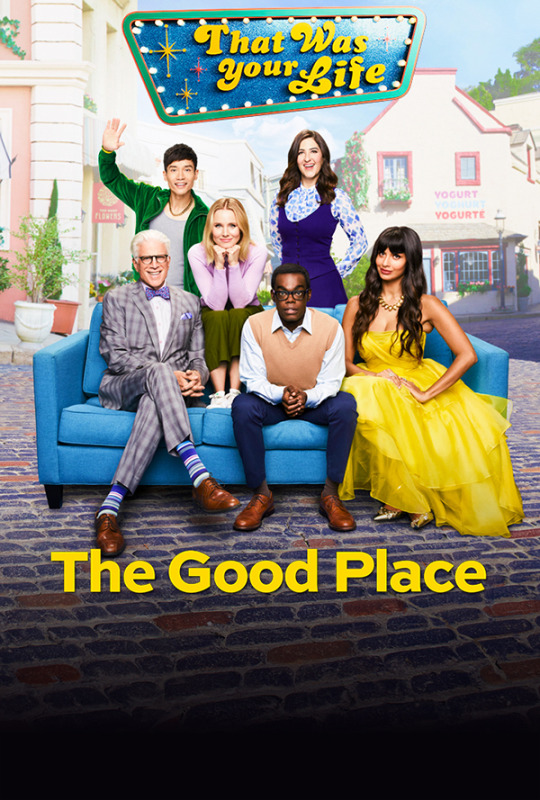
The Good Place has been high on my list since its first season and shows no signs of dropping in quality or esteem as it enters its final stretch of episodes. 2019 encompassed the end of Season 3 (including the hilariously imaginative visit to the Interdimensional Hole of Pancakes) and the beginning of Season 4 (with its crew of new characters and just as many reversals and rug-pulls as you’d expect). The final episode before its winter break was “The Answer,” a touching spotlight on William Matthew Harper’s Chidi, which might have been enough to make this list all on its own. (And given the surprise cameo/quasi-crossover in its first episode of 2020, I wouldn’t be surprised if it shows up here again next year too.)
3. Unbelievable (Netflix)
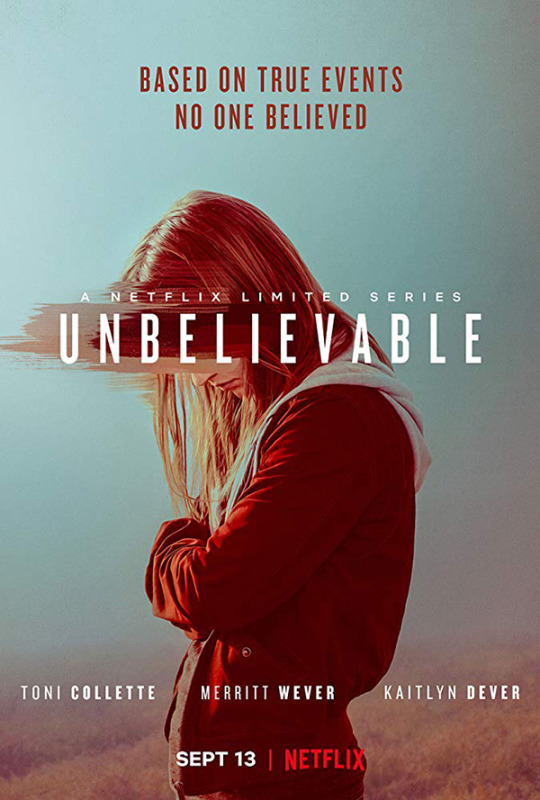
The true story of a serial rape case adapted from journalism by ProPublica, The Marshall Project and This American Life, Unbelievable is one of the most simultaneously heartbreaking and satisfying procedurals I have ever seen. As crushing as it is to watch the initial investigation completely mishandled and devolve to gaslighting, it is powerful and inspiring to watch compassionate public servants and actual good detective work be carried out as the series progresses. Kaitlyn Dever, Merritt Wever and Toni Collette are uniformly excellent here (as they also were in their respective film roles in Booksmart, Marriage Story and Knives Out this year).
2. Watchmen (HBO)
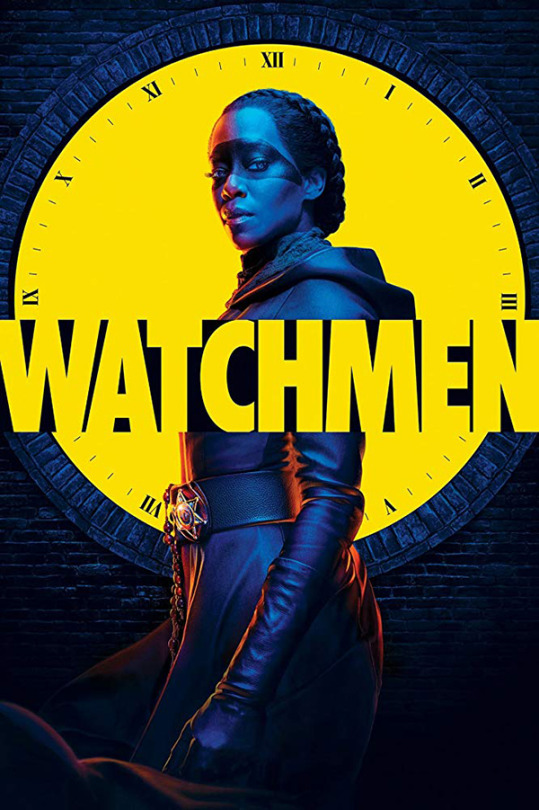
Showrunner Damon Lindelof (LOST, The Leftovers) takes some incredibly bold swings in his limited-run sequel to the groundbreaking 80s graphic novel that deconstructed the ideas of vigilantism and superheroics. Picking up in the same alternate reality as that story but in present day, the main action is shifted to Tulsa, Oklahoma, and the central theme is race relations. It could have gone way off the rails in a million different ways, but I found it to be incredibly successful. Each episode is a captivating work of art and it somehow seems to top itself with each subsequent installment. While I appreciate the book, I don’t love it; this series takes that source material seriously and, to me, completely transcends it.
1. When They See Us (Netflix)
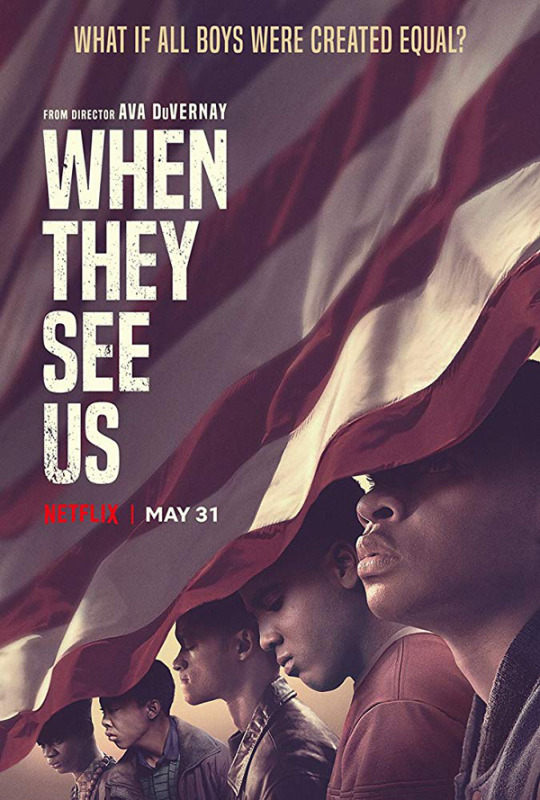
As compelling as it is devastating, this miniseries from Ava DuVernay (who directed and co-wrote all 4 parts) dramatizes the lives of the wrongly convicted children the media dubbed “the Central Park Five.” Even with some familiarity of the story from watching Ken Burns’ documentary years ago, I was utterly gutted by the depiction of the injustices and systemic racism that stole these childhoods. Everyone in the cast shines, but Jharrel Jerome’s portrayal of Korey Wise (the only one of the group played by the same actor as a child and adult – and so convincingly) is truly phenomenal. Not a comfortable watch but an essential one.
Bonus! Musical Comedy Specials:
The Unauthorized Bash Bros. Experience (Netflix) – This “visual poem” from the Lonely Island presents “an album of raps” recorded by Jose Canseco (Andy Samberg) and Mark McGwire (Akiva Schaffer) at their steroid-fueled 80s peak with the Oakland A’s. Your likely enjoyment is probably about equal to your reaction to that description. The songs are great, catchy and hysterical on their own, but the videos take it to another level, parodying everything from 80s infomercials to Enya to Beyonce’s Lemonade. There is no 30 minutes of TV I rewatched more in 2019.
John Mulaney and the Sack Lunch Bunch (Netflix) – Debuting on Christmas Eve, this children’s television homage/parody snuck in just under the wire. The words of the day could be fear and mortality, as the group of kids Mulaney interacts with reveal their personal phobias and several skits revolve around existential angst. By the end of the first musical number I was sold, by the time David Byrne showed up I was committed, and by “Mr. Music’s” madcap finale I wished it could last forever.
6 notes
·
View notes
Text
I’m calling bullshit on your hate.
STOP STEREOTYPING SANGWOO FANS!
I am a Sangwoo fan. I am also a Bum fan. A strange dichotomy, I know.
Both of these characters exhibit problematic behavior, but that doesn’t mean you can’t be a fan of them, either individually or simultaneously. Does being a fan of either of these characters mean that you support these damaging behaviors in real life? NO. Calling out people who support REAL LIFE crimes is fine, but calling out people who are trying to enjoy being a fan of a FICTIONAL character IS NOT OKAY. You are clearly not helping real life people by doing so. You are being judgemental and self-righteous, shaming people to feel superior and patting yourself on the back for it. You not only contradict yourself several times, but you also act entitled to hate real people for liking something you personally don’t, have the arrogance to proclaim what the author “better not” do, and wish ill on real people. The hypocrisy is appalling. Do you not see the irony? You are not protecting people from real life abuse BY HATING ON REAL LIFE FANS of a fictional character. You are in fact engaging in verbally abusing real life people. It doesn’t matter what the character does; it’s fiction. Are there real people existing out in the big wide world who do crimes or support criminals? Yes, but to generalize, stereotype, and basically accuse FANS of being as bad as the people who do this or to conflate us and lump us together is disgusting, illogical, and highly offensive.
How can we “still stan his ass / this ship”? We can because the beauty of fandom is that you get to pick and choose what you like. You get to twist it up, turn it inside out, and make it into an AU parody of itself. ART IS SUBJECTIVE. It’s about what individual thing each and every one of us found gut wrenching or what pulled at our heartstrings. Don’t invalidate what other people found or resonated with just because it’s not the same thing you did. People fear different things. People emphasize, magnify, and conversely minimize different things based on what concerns each of us individually. That’s okay and people shouldn’t be shamed for having a different opinion. After all, being a fan is a form of opinion. And opinions are not facts. Don’t confuse the two; you holding an opinion does not make your opinion a fact.
Fiction is about emotional catharsis. It doesn’t matter that stealing a car or killing a dog are not crimes worthy of the death penalty in real life - I wanted to see John Wick kill all those fuckers for killing that little puppy.
And NOT ALL MEDIA should have a healthy or happy ending. Was Romeo and Juliet’s double suicide a healthy ending? NO. It was a tragedy! Tragedies have an important place in media. They often serve as cautionary tales. If you want another cliched boring “bad guy dies/goes to jail” ending, WHY ARE YOU SHAMING FANS WHO WANT SOMETHING DIFFERENT? You have an endless supply of your preferred ending. Go watch one of the thousand CSI/detective/cop procedural shows. They are everywhere. While I enjoy psychological thrillers (AS RARE AS THEY ARE), I am also a fan of some great detective shows and murder mysteries. I could recommend so many fantastic ones. But some of us want a unique ending for Killing Stalking, even if that means something “unhealthy” by real life moral standards. It was labeled a psychological thriller, after all. Not a mystery. Not a detective story. It was also labeled BL, and even if it gets a twisted/unhealthy ending because of the psychological thriller genre, it still qualifies because twisted BL is still BL.
I do not excuse Sangwoo’s abusive treatment of Bum. I’m often disappointed and angry on Bum’s behalf. And while I find it difficult to believe canon Bum would be in a healthy relationship with anyone (and I would love to make a post about how I see his fondness for frogs as symbolism for his relationships), I still have the ability to enjoy the possibilities of a healthy fanon-based relationship or even appreciate the grim take of a tragic and/or twisted unhealthy ending. This is how I still ship Sangbum in certain contexts, but not always, because context matters and it depends. I know that sentence sounds ridiculous, but that’s how it works! Because it’s OKAY TO SHIP FICTIONAL UNHEALTHY SHIPS. Because it’s fiction. And if people can vent their issues through the written word in order to not do so in real life, good. Many people find reading/writing therapeutic. Some authors write a lot of problematic behavior as angst. Do they deserve hate? NO. There are plenty of instances when I have shipped a healthy ship but not shipped it (and in fact wanted them not to end up together) in certain fics because I felt the fic had portrayed an unhealthy relationship. But did I send hate to the author of that fic when that ship ended up together anyway? NO. Just because it ended in a way I didn’t like didn’t give me or anyone else the right to spread hate or shame over a fictional story.
Also, as a Bum fan, I do not appreciate seeing any victim blaming of Bum. There’s some out there (including your despicable “Bum better not” comment), but at least this hate is not anywhere near the amount of Sangwoo hate. As a fan of both characters, I can see that there is clearly so much more Sangwoo hate out there. And it’s fine to criticize, dislike, or even hate Sangwoo as a character, but it’s NOT OKAY to hate on his fans. He is a fictional character, but his fans are real people.
I am a fan of Sangwoo because he is an intriguing, complex, and well-written character. He’s got flaws. All characters do. And I understand his flaws are pretty damn big. But I understand that he’s a fictional character. I would never support a real person committing such crimes or abuse. So, frankly, while you may find my being a fan “annoying” - I will not be shamed or hated upon.
To quote my sister, “In the safety of fiction, we can deconstruct the complexities of what’s morally gray.”
In other words, exploration through FICTION, discussion, and debate are welcome. Hateful posts are not.
This is a long post, so I’ll put my further calling bullshit on arguments made by haters behind a “Keep Reading” link:
Also, the criticisms for being a fan because of “fetishizing gay men” are bullshit. Firstly, anything anyone finds hot could be labeled “fetishizing” which is ridiculous. Secondly, some fans are gay men who are not “fetishizing” - they are simply enjoying the story even if it is twisted. (It’s okay to be a fan of a story that portrays an unhealthy relationship; not every story is meant to be a moral standard.) But also, this bullshit argument is just reducing people down to a ridiculous stereotype used to stifle women in fandom. This has been used through the ages and it is wrong. Are there possibly straight women out there objectifying gay men the way straight men would objectify gay women? Yeah, there’s probably some. But I’ve been in fandom a LONG time and this is not representative of fans in general, let alone all female fans. How about you let women consume all forms of media they find identifiable, cathartic, containing unique storyline with complex flawed characters, or even (gasp) entertaining? Stop shaming people. And maybe especially - don’t resort to misogynistic tropes to do so. I think it’s safe to say that fans (including female fans) generally tend to be a fan for more than just a character’s appearance and body parts. There’s usually character traits, personality quirks, things that draw you to go beyond casual reading/watching into becoming a fan.
Personally, I identify with stories portraying gay relationships equally as much if not more than with stories portraying heterosexual relationships. Maybe that’s because I’m bisexual, but I don’t think so. I believe that straight people can also find themselves identifying with the story and the struggles portrayed - no matter what the sexual orientation of the pairing portrayed.
You think I only like portrayals of gay men rather than women? No, I like both. Killing Eve is a fantastic example of a fandom that I would love to see grow! I despair at how small the fandom is compared to my usual fandoms, but it’s new! It can grow and I can’t wait for season 2. The harsh reality, though, is that f/f ships tend to be smaller fandoms. This may be due to so few well-written female characters in general throughout media - though, this is improving and having more female writers in media helps. Killing Eve has great characters and really great writing, so hopefully they can buck this trend and grow a decently large fandom featuring f/f ships. Sara Lance/Ava Sharpe from Legends of Tomorrow are a pretty big ship, which is heartening, and Xena/Gabrielle from Xena Warrior Princess were an absolute juggernaut back in the day (kudos to anyone who recognized Xena from my main tumblr’s icon).
You think I only like hot men? Or that I excuse the actions of killers who are hot men? NO. I watched The Fall with Gillian Anderson and Jamie Dornan, where Jamie Dornan played the serial killer and NO - I was not a fan of his character, let alone attempted to excuse any actions by his character whatsoever, even after they explained his tragic backstory. And You on Netflix is just too obnoxious in my personal opinion for me to even watch. But I’d never take time out of my day to hate on any fan who enjoys it.
Calling out problematic stuff in media is fine, but don’t use it as an excuse to spit vitriol and hate at fans who you disagree with.
P.S. Seriously, ask me for recs of good detective shows/murder mysteries. I’ve got so many I could recommend that are way better written than most. Want a female detective? I’ve got plenty. Want a gay male detective? Got it. Want a murder mystery twist where the murderer wins? Got that.
#Dear Antis#sangwoo#killing stalking#i'm not tagging that hateful poster#because if they don't frequent the tag they spewed their hate in it won't matter#my post wouldn't stop them#but if i can reach the ks fans who do#and encourage this fandom to be nicer to each other#that matters
99 notes
·
View notes
Text
Top 5 Wednesday
https://www.goodreads.com/group/show/118368-top-5-wednesday
Topic: Books Featuring Mental Health
This was a very difficult topic to discuss. Not only is it a sensitive topic because of how many people can struggle with their mental health but also because it's a topic that I think should be talked about but I'm not exactly qualified to do that. I also wasn't sure to what extent mental health needed to be featured, if it needed to be the focus of the story or if it just needed to be present. All of my entries feature protagonists that I think has mental health issues, and I will try my best to dissect the problems the protagonist must deal with and how this impacts the character and the story.
The Bell Jar by Sylvia Plath: This one makes the top of the list for a few reasons. It is a book that entirely revolves around the protagonist, Esther, dealing with her depression, and it's also the one I can talk about best because depression is something I deal with myself. This is a book that really resonates with me and I think does a good job at capturing what it feels like to have depression. It's this heavy emptiness that weighs down on you and leaves you in an immobile state. No motivation to do anything because it's pointless. Having your whole life set before you only for it to be ripped away. Comparing yourself to others and coming to the conclusion you'll always be second best. Being overwhelmed by life itself and being unsure of what to do. These are all things that I've experience myself and do usually trigger my depression. I like this book because it understood me, but it also shows the effect that the lack of a care of mental health can have negative effects on people. Many professionals are dismissive because the character is a woman, but their only solution seems to be to subject her to electric shock therapy treatments, which just sounded terrifying and doesn't work because they aren't addressing the cause of the problem. By the end of the book, the protagonist doesn't seem to have improved at all, she's just become better at hiding her issues because that's the only way the rest of society will accept her. Granted she does seem to slightly improve by doing things she wasn't able to do before. There's also a connection between Esther's depression and the pressure to be a married and a mother, and while I can't connect to that part but it does make for good discussion material. Undoubtedly my interpretations of this novel are colored by my own personal experience, but it is a poignant novel about depression and conforming to society ideals.

2. The Hunger Games by Suzanne Collins: It may be a little surprising that this book is on this list, but when it popped in my head I realized that it really fit. While the primary focus of this book is on the revolution, it also takes time to analyze and satirize many things about our current culture (something the movies forget to do entirely), including how damaging war is to a persons psyche. Katniss suffers from PTSD, even before the Hunger Games has actually started. She has nightmares about her Dad being blown up and because of this death had to grow up very quickly to ensure that her family didn't starve to death because her mother was in catatonic state. As a result she comes off as very cold, trusting very few people, and seems to be desensitized to the injustices of her world and only cares if it affects her family, but she's also very resilient and a capable survivor. Both during and after the Hunger Games, Katniss's PTSD only gets worse as the world around her becomes more unstable and now she must watch those she cares about actually get killed. It reaches a breaking point in the third book where the majority of the story has a very dazed, depressing tone because Katniss has basically checked out of life, suffers frequent episodes of depression, and keeps herself on morphine. She's even seeing a therapist, because it's that bad. Let's not forget that she's just a teenager being thrust into a war that she didn't want to be a part of, which is guaranteed to screw up any kid. The trauma is so severe that even years after the war, when Katniss has kids, she still suffers from nightmares. Her recovery is an active process that takes years, but Katniss does little thing to remind herself that there is good in the world, like making the memorial book. Plus she has a good husband who understands what she's been through. War and trauma are serious things that have long reaching consequences and takes effort to recover from, and the way that The Hunger Games series demonstrates this is part of the reason it's become something of a modern classic.
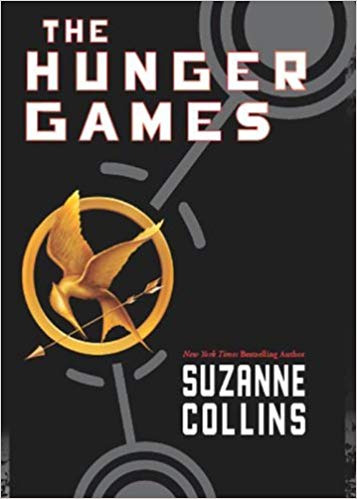
3. Love Letters to the Dead by Ava Dellaira: Much like the entry above, this one is also about overcoming trauma. Unlike The Hunger Games though, it's on a much more personal level and the story focuses more on the trauma and grief and even guilt that the protagonist, Laurel, has suffered. The source of her suffering stems from her relationship with her older sister, who has recently perished. Laurel idolized her older sister, so much so that she tries to emulate her at the start of the book and it comes off as cringe worthy. This idolization was unhealthy and unrealistic but also didn't give the complete picture. Laurel's relationship with her sister both before and after her death was, complicated to say the least, and this has a strong impact on who Laurel is, but Laurel eventually comes to terms with the fact that both she and her sister are flawed and that isn't a bad thing. Also smothering your suffering doesn't make it better, or go away, and it's good to get help from people you know and trust. This book is similar to Perks of Being a Wallflower but I picked this one because it has a more positive and hopeful ending with recovering from trauma, which I felt Perks of Being a Wallflower lacked.
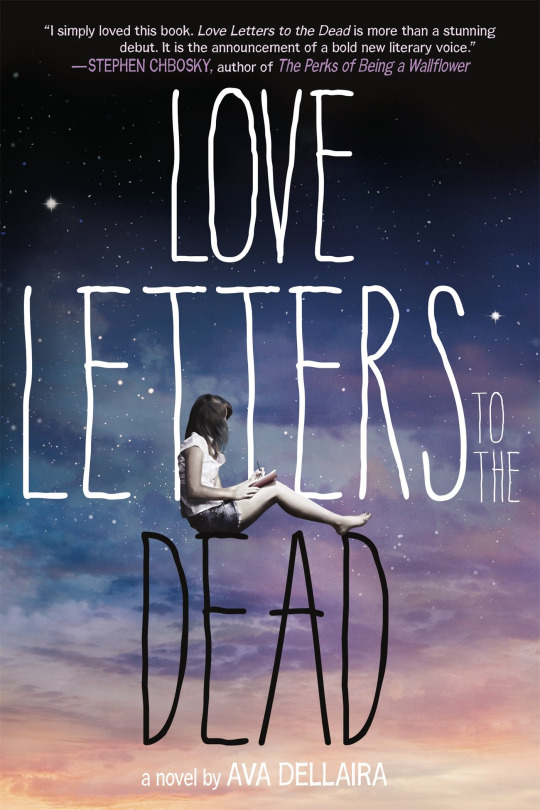
4. Eliza and Her Monsters by Francesca Zappia: The protagonist in this book, Eliza, appears to suffer from social anxiety. As a result she struggles with relationships in the real world but seems to do well with internet relationships. After a new boy arrives at her school and starts to open up more to him. So there are thing I like about this one and there are things I don't like about this one. I don't like the fact that it was this new boy who's obviously going to be the love interest and only him that Eliza opens up to because it makes her growth feel more artificial. I like that the online friendships were treated as genuine ones because that's something that is both topical and can be a good way for people with social anxiety to interact. I don't feel that Eliza really grew as a person. Yes she starts going to therapy which I think could be helpful, but she still doesn't open up even to her own family and this is after her brothers confronted their parents about the big mistake they made and how it's going to negatively impact Eliza's online experience, which does lead into the other thing I liked about this book. Eliza can be selfish at times. She's put herself in bubble so that her entire world revolves around her, which is a very human thing to do, but even when the people she is closest with are clearly struggling all she wants to focus on is her own issues. This happened several times throughout the narrative, and I appreciate for being there because it highlights the fact that the world doesn't revolve around you and part of being a better person is striking that balance between caring for yourself and caring for others close to you. Unfortunately this still made Eliza an unlikable character because she never realizes that she's at fault. This is definitely a decent book for talking about social anxiety or internet culture, but I can't say it's great because of the protagonist and romance.
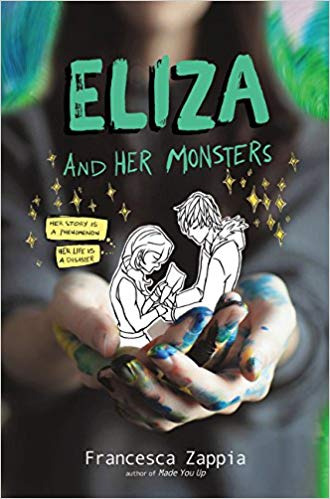
5. Ceremony by Leslie Marmon Silko: I actually forgot about this one because it was a required reading that I did in college, but it was actually one of two reads I enjoyed that semester. Like most of the other entries on this list, the protagonist suffers from PTSD during a time when PTSD wasn't really a thing (he's a recently returned WWII veteran). He's also half Caucasian and half Native American, which has made him an outsider his entire life, even among his own family. This was a beautifully written novel that also focuses on recovery, but in a very spiritual way where the protagonist learns to be accepting of himself and cutting out the toxic aspects of his life, like violence.
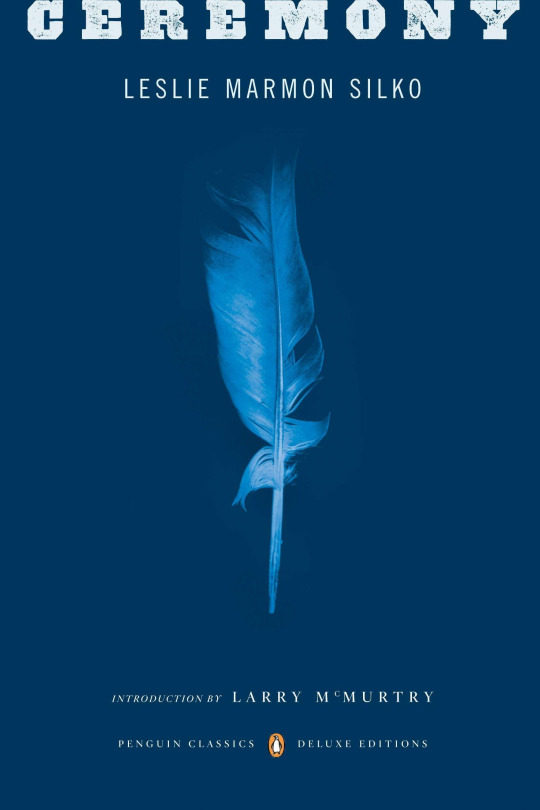
Thank You Everyone
Keep Calm and Keep Reading
#t5w#mental health#books#the bell jar#sylvia plath#the hunger games#suzanne collins#love letters to the dead#eliza and her monsters#ceremony
2 notes
·
View notes
Text
Tumblr Multimedia Journal Assignment 2: When They See Us
“When They See Us” is a four-part Netflix miniseries written and directed by Ava DuVernay. The series tells the story of the Central Park jogger case, which took place in 1989. The events occurred on April 19, 1989, where more than thirty teenagers were creating a disruption in New York City’s Central Park. Some of the teenagers took part in different attacks, assaults, and robberies against people who were at the park. Many of the victims filed police reports: several cyclists were attacked, cab drivers were thrown rocks, and a pedestrian was robbed and left unconscious. On the same night, a white female jogger was violently raped and assaulted. She was knocked unconscious and dragged off of the road, where the assault itself took place. She was left, beaten almost to death, and her body was discovered almost four hours later. The victim, who remained anonymous for 14 years, and was referred to as the Central Park jogger, was a woman named Trisha Meili, a 28-year old banker. Her injuries were so severe that she remained in a coma for twelve days. When she woke up, she couldn't talk or walk and to this day, still has no memory of the attack. On that night, twelve arrests were made. Five of the boys who were arrested included Korey Wise, Yusef Salaam, Raymond Santana, Antron McCray, and Kevin Richardson, all between 14 and 16 years old. They later became known as the Central Park Five. Each of them were interrogated for at least seven hours. For most of them, a parent was not present throughout the whole interrogation although they were all minors. The police violently coerced confessions out of them, which were videotaped and later used during their trials. At the end of their trials, Salaam, Santana, Richardson, and McCray were all sentenced to 5-10 years. Korey Wise, who was 16 at the time, was tried and sentenced as an adult (5-15 years.) Matias Reyes, Meili’s real assailant, eventually confessed to the crime and the Central Park Five were cleared of all charges after having almost served the entirety of their sentences.
“When They See Us” very accurately represents the racial hostility that predominated New York City during the 1980’s. At the time the Central Park Five were tried, they weren’t seen as human beings. Through many people’s eyes, these young boys were animals, savages that hurt and traumatized a young, educated white woman. Donald Trump, a character we are extremely familiar with today, went as far as publishing an ad in the New York Times asking that these boys be executed. It was a full page ad with the headline “Bring Back the Death Penalty”, costing him $85,000. He wrote “I want to hate these murderers and I always will. I am not looking to psychoanalyze or understand them, I am looking to punish them.” In an interview around the time of the case, he said “Maybe hate is what we need if we’re gonna get something done.” A grown man said these things about five teenage boys who had no real scientific evidence against them, and who were always innocent. If their case had taken place earlier in the 20th century, it is incredibly possible that they would have been part of the large group of black and brown people who were lynched. Ava DuVernay, writer and director of the series, does an exceptional job of humanizing the Central Park Five. Although some parts were fictionalized for purposes of the show, the young boys and their families are accurately represented and so are the injustices they had to experience. This case took place in the 80′s, yet we see parallels and similar situations happening in more recent times. Black and brown people have historically been dehumanized and treated unfairly by the criminal justice system. There is an oppressive system in place that puts black and brown people at the very bottom of the social hierarchy. Referring to Peggy McIntosh’s “Unpacking the Invisible Knapsack”, she mentions that the system works to favor white people and disadvantage POC. Maybe if the Central Park Five were white, privileged boys, coming from “better” parts of the city, the outcome of their trial would have been very different. Maybe they wouldn’t have even been arrested in the first place.
Unfortunately, this case resonates a little too closely to the type of mistreatment of black and brown people we continue to see today. This is something that has been happening continuously throughout history. How different is lynching to young men being unfairly tried for a crime they didn’t commit, or to unarmed and innocent black people being murdered, many times by those who are supposed to keep our communities safe? In the case of the Central Park Five, it’s interesting to note that they were humanized a large part of the public only after they were exonerated. Yet in the case of white people committing similar crimes, they are usually given the benefit of the doubt. When news reports come out about white people committing similar crimes, the pictures shown are not mugshots; they’re senior portraits, photographs with their families, pictures of them looking accomplished at athletic events. For them, it is “innocent until proven guilty.” In “Picture Us”, Willis mentions the importance of mundane and ordinary representation black people, something that feels difficult to achieve even today. Imagine how difficult it was, and continues to be, for young black and brown people to see images of themselves only for negative reasons. It is a constant reminder that they are seldom seen as youths with infinite potential, but more often potential criminals and troublemakers. In the case of Korey Wise, he was judged for the way he spoke, and the reason was simplified to him not wanting to attend school. In reality, the case was that he refused to attend class because of the bullying he faced. Again referencing Peggy McIntosh’s “Unpacking the Invisible Knapsack”, #2 on the list is “I can avoid spending time with people whom I was trained to mistrust and who have learned to mistrust any kind of me.” Korey Wise, Yusef Salaam, Raymond Santana, Antron McCray, and Kevin Richardson could not afford that privilege.
Dwyer, Jim. “The True Story of How a City in Fear Brutalized the Central Park Five.” The New York Times, The New York Times, 30 May 2019, www.nytimes.com/2019/05/30/arts/television/when-they-see-us-real-story.html.
Hamilton, J. Christopher, and Donovan R. Roy. “When They See Us: An Unshaken History of Racism in America.” Wiley Online Library, John Wiley & Sons, Ltd, 6 Mar. 2020, onlinelibrary.wiley.com/doi/full/10.1111/jftr.12360.
Herzog, Kenny. “Where the Key Characters From When They See Us Are Now.” Vulture, 14 June 2019, www.vulture.com/article/when-they-see-us-central-park-five-now-explainer.html.
Mcintosh, Peggy. “White Privilege: Unpacking the Invisible Knapsack (1989) .” On Privilege, Fraudulence, and Teaching As Learning, 2019, pp. 29–34., doi:10.4324/9781351133791-4.
Paul, Deanna. “'When They See Us' Tells the Important Story of the Central Park Five. Here's What It Leaves out.” The Washington Post, WP Company, 29 June 2019, www.washingtonpost.com/history/2019/06/29/when-they-see-us-tells-important-story-central-park-five-heres-what-it-leaves-out/.
Tillet, Salamishah. “'When They See Us' Transforms Its Victims Into Heroes.” The New York Times, The New York Times, 30 May 2019, www.nytimes.com/2019/05/30/arts/television/when-they-see-us-netflix.html.
Willis , Deborah. “Introduction: Picturing Us.” Picturing Us: African American Identity in Photography, Diane Publishing, 2006, pp. 3–26.

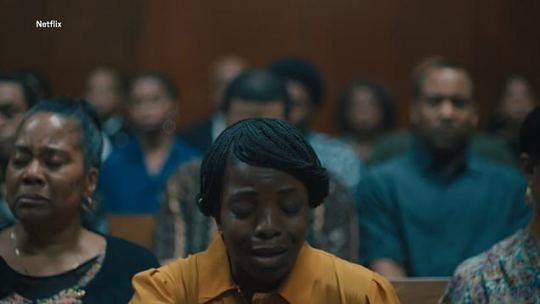
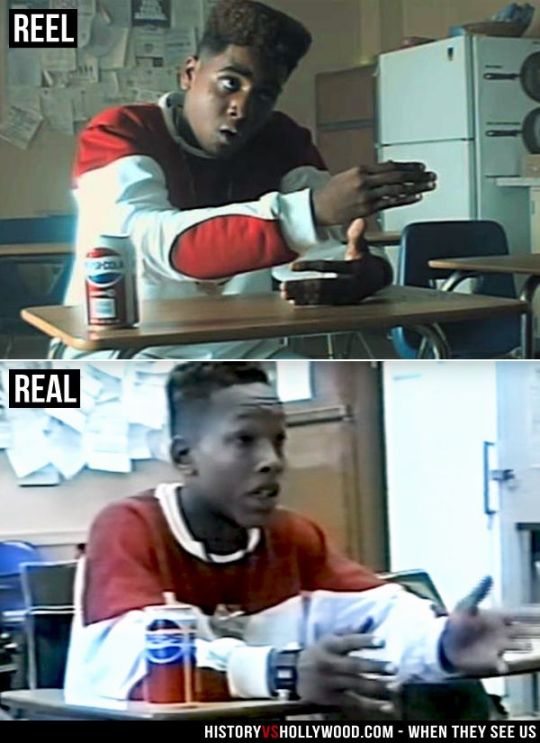
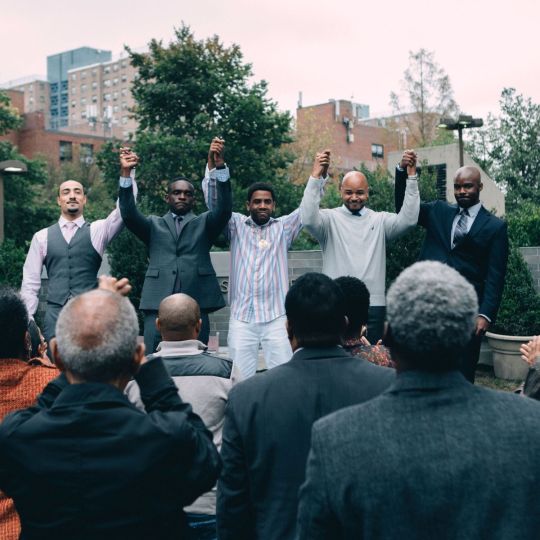
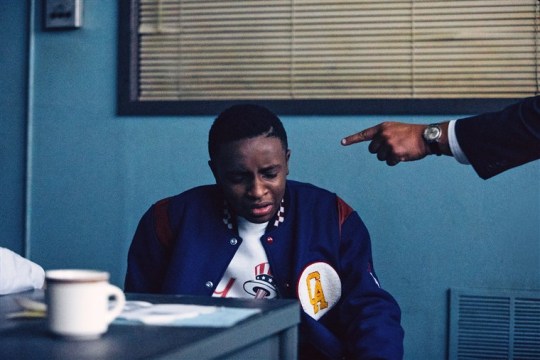
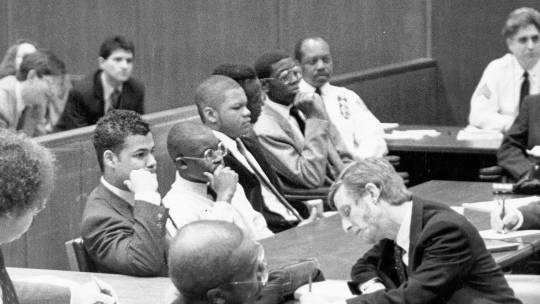
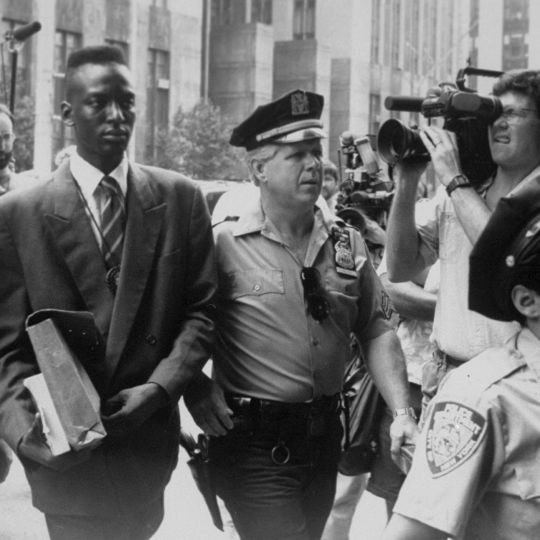
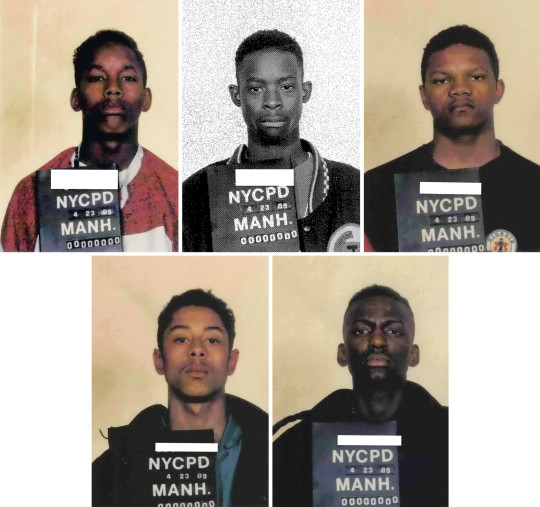
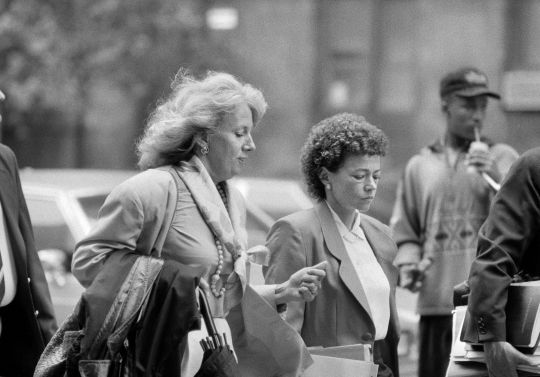
0 notes
Text
Maze Runner: The Death Cure (2018) Review
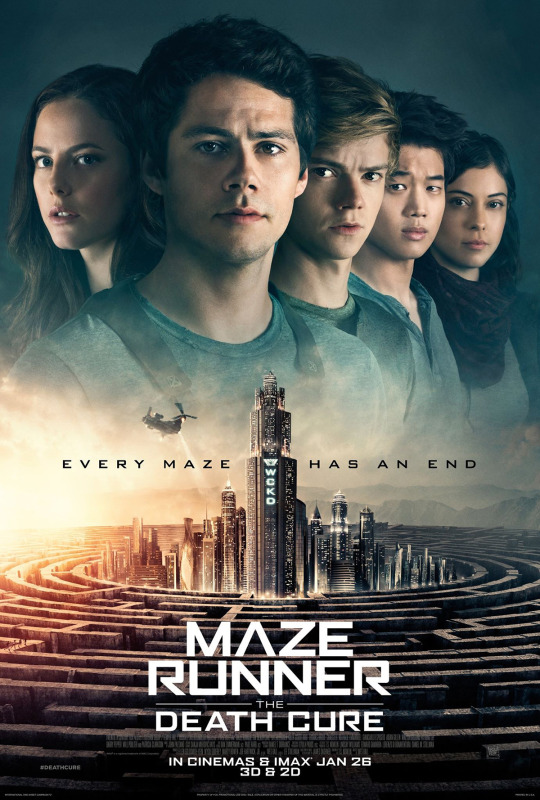
The last big YA franchise still going, and its only cause Dylan O’Brian thought he was Tom Cruise and risked a stunt when he didn’t have to so he ended up in a hospital and so the film was pushed back whilst the YA film movement slowly died out and now ‘The Death Cure’ is finally here, but is there any interest left in the franchise? I thought not, and then I went to the cinema to see it, and the screening I was in was full. So well done world, you still surprise me!
Plot: In the epic finale to The Maze Runner Saga, Thomas leads his group of escaped Gladers on their final and most dangerous mission yet. To save their friends, they must break into the legendary last city, a WCKD controlled labyrinth that may turn out to be the deadliest maze of all. Anyone who makes it out alive will get the answers to the questions the Gladers have been asking since they first arrived in the maze. Will Thomas and the crew make it out alive? Or will Ava Paige get her way?
The ‘Maze Runner’ films were never anything special in my eyes. I don’t even really find them particularly good as films, but they are enjoyable for what they are. These are the types of films you can watch on a Saturday night when you just want to relax and you don’t want to watch something that requires a lot of brain work. But one thing I admire about the ‘Maze Runner’ franchise and more-so about this new entry is that you got to give props to director Wes Ball for making his trilogy. He directed all the films in the series and he was able to tell this story from beginning to end, and that is admirable. And I also appreciate Wes Ball for having the gut to refuse that extra paycheck and not split the final book in the series into two films, unlike franchises like ‘Harry Potter’, ‘The Twilight Saga’ and ‘Divergent’, the latter of which didn’t even succeed in its ambitions. And don’t even get me started on the short ‘The Hobbit’ book being turned into a massive trilogy the size of ‘Lord of the Rings’. So yes, I do admire Wes Ball for keeping the final book as one film, and not splitting it into multiple films, however at the same time with having only one movie for the final book, the movie is too long. ‘The Death Cure’ goes on for about 2 hours 30 minutes or something along those lines, and I get why, since Wes Ball wanted to cram as much into the film as he could, however by doing so the movie inevitably hits pacing issues, with many scenes dragged out to the extent of becoming boring, and many side-plot points which the film easily could have done without. That brings me to the next issue, being that there are way too many characters in the film which the plot doesn’t manage to balance well, and so many characters end up being under-used. The main victim in this is Patricia Clarkson’s villain Ava Paige, who throughout the series has been doing sweet FA and gets the same treatment in this film too, especially in the end where she kind of loses the ‘villain’ title in order for another character to get his moment to shine, which is fair play to that character, but not to Patricia Clarkson. To add to this, ‘The Death Cure’ finds the need to introduce more new characters with the likes of Walton Goggins’ mysterious business man Lawrence, who appears in the film, says a bunch of monologues and then just goes away. Goggins doesn’t do a bad job at portraying the character, but you are just left there wondering what the real purpose of his character was. And there are quite a few questionable plot choices throughout the movie, then again for the kind of movie this is trying to delve deep into the logical side of things isn’t really the right call.
‘Maze Runner’ and ‘The Scorch Trials’ both were films that were enjoyable on their own, but it always felt like we were missing something, with that feeling that those two films were building up to something big. So ‘The Death Cure’ has the job of giving us the pay-off as the final chapter in the series, and to be honest it does a swell enough job with basically a non-stop action romp with our heroes going on endless missions and looking bad-ass whilst doing them. And the action is actually fairly decent, with the opening sequence involving a cargo train having a very ‘Mad Max’ feel to it, and then later in the more final moments of the film there are some cool close combat moments which were in all fairness to Wes Ball not badly directed at all. Moving on, the performances from cast members in this film were not bad at all, but generally everyone was fairly mediocre, and it didn’t help that many cast members the likes of the already mentioned Patricia Clarkson and Walton Goggins, and then also Giancarlo Esposito, Dexter Darden and many others being strongly under-used. But there are stand-outs, with Dylan O’Brian being one as our lead hero Thomas, and if there’s one thing that the ‘Maze Runner’ franchise succeeded in, it was that it made a rising star out of O’Brien, who is a talent to be watched. He just needs to be willing to step away from the comfort of his action films and be willing to tread into new territory like indie, drama, comedy or coming-of-age films, as I think that he has the talent for it. I mean, it was a nice change of pace when I saw him in the film ‘Deepwater Horizon’, and if he continues down that route he might end up being something bigger. Thomas Brodie-Sangster was also really good as Newt, and it was really nice to see that at the root of this film was the friendship between Thomas and Newt, and their relationship was the closest thing this movie got to emotional resonance. Rosa Salazar has a few strong scenes, which makes me really look forward to the upcoming ‘Alita: Battle Angel’ in which she will be able to show her full action star power by having to handle a lead role. And I was quite surprised by Aidan Gillen, who takes his weaselly factor from ‘Game of Thrones’ but also adds the sort of cool villainous stance to himself, and I was actually genuinely appreciative of his role in this film. Also a certain character makes a surprising return which was very welcome, that is all I’ll say on that matter.
Last few points to mention is that I feel like the film could have done a better job at tying into the previous two films, since because of the two year gap since the last film, a lot of people most likely forgot what has happened in the series thus far, as this is not a franchise which you can class as particularly memorable. For example, 30 minutes into the film and a zombie appears, and for a couple minutes I was confused as to why a zombie randomly appeared in this movie, and then I remembered that this series has the whole zombie virus plot-line which the film didn’t really remind us about until that helpful hungry zombie showed up. I’m just saying that because of the delay in production I think ‘The Death Cure’ should have had at least some kind of small reintroduction to the series for those of us who are not that dedicated to the fandom as some out there. Also, another point, I admired this film for not being scared of killing off its characters, which is a notable issue in many blockbuster films these days, especially those that are budgeted by a certain small company that goes by the name Disney. However with 20th Century Fox I always appreciated their films more, as it seems that the execs of that company generally give a lot of creative freedom to the directors and producers of their films, which is only more the shame that 20th Century Fox is now merging with Disney. Well, at least its nice to see that ‘The Death Cure’ still stayed true to its plans, with director by the end of the film hitting the point of “f*** it” and simply killing off everyone left and right. I actually was surprised as to how many characters died, but I appreciated Wes Ball having the guts to do so, and also from what I understand he stayed fairly true to the original novels, so good job to him on that also! Generally speaking even though this is a fairly dumb and not particularly brain-challenging franchise, all of these films have been fairly enjoyable, including ‘The Death Cure’, and even though I doubt I’ll remember much of these films, if they ever come up in my mind, I will look back at them fondly.
Overall score: 6/10
TOP MOVIE QUOTE: “Three years we’ve spent behind walls trying to breakout, and now we want to break back in.” “Hilarious, isn’t it?”

#maze runner#maze runner the death cure#wes ball#wckd is good#the death cure#the death cure review#maze runner the death cure review#dylan o'brien#ki hong lee#kaya scoledario#giancarlo esposito#walton goggins#will poulter#thomas brodie-sangster#dexter darden#aidan gillen#rosa salazar#patricia clarkson#james dashner#action#science fiction#thriller#film#film reviews#fantasy#movie reviews#2018#2018 films#movie#barry pepper
2 notes
·
View notes
Text
I hope everyone had an informative and reflective Black History Month! This month for the Own Voices Global Reading Challenge we read for Black America (#ownvoices selections from Black American authors). Here’s what I read, listened to, and who I followed this month!
What I Read
Their Eyes Were Watching God by Zora Neale Hurston: My favorite of the month! This book has been on my TBR for ages, and I finally sat down to it and read it all in one sitting. Following the life of Janie from her idyllic but illusionary childhood, through her marriages, through her adventures and travels, Their Eyes radiates with beauty, love, and self-discovery. The story was so vibrant and moving, so complex and philosophical. I loved Janie and her story; she’s probably one of the most interesting and complex characters I’ve ever read. I was thinking about her and her story long after I closed the book.
An American Marriage by Tayari Jones: Another that’s been on my TBR for ever. I was working at the library when this book exploded in popularity — it was almost never on the shelf. With Jones being a local author, I was excited to read her Atlanta and this book did not disappoint. Moving between the lives of a married couple, Roy Jr. and Celestial, the novel navigates the complicated terrain of love while the characters navigate the even more complicated terrain of a wrongful conviction and imprisonment. I was riveted to the last chapter, unsure how it was going to turn out well for anyone with only a few pages left. A moving portrait of love, loss, and the effects of the criminal justice system on Black lives, this novel is an instant classic.
Citizen: An American Lyric by Claudia Rankine: I had the honor of meeting Claudia Rankine while I was in college. She was a guest at Agnes Scott College’s Annual Writers’ Festival in 2017 while I was interning with the program. I was amazed by her wisdom and quiet grace, and I thoroughly enjoyed her reading though I had never read her work. When I devised this challenge, she was immediately at the forefront of my list for this month. Citizen is a moving collection of experiences, reflections, and essays in which Rankine lays bare the Black experience. There was so much I learned not only about the physical and casual experiences that Black women face, but also about historical events of racism and violence that I had never heard about before.
For Colored Girls Who Have Considered Suicide/When the Rainbow is Enuf by Ntozake Shange: I found this book from a bingo card for Black history month by @diverseclassics on Instagram (see below!). I had heard about this book here and there, but I didn’t really know what to expect from it. It was unlike anything that I’ve ever read. Written and performed on stage originally in the 1970s, For Colored Girls is a moving and flowing collection of Black women’s experiences. It can be hard to read. I will admit that the form of this book really inhibited the experience of it for me. I have no experience in theater, I don’t read plays, and I only read poetry when forced. I’d love to watch this book performed, as it was intended.
Just Mercy by Brian Stevenson: Another that’s been on my TBR for a while! This book came to my attention more seriously when the film was released, but I had watched it dance around on Bookstagram for a while. I found a copy at my library book sale recently, so I had it up farther on the list. I knew it would be good, but I had no idea how moving, how emotional, and how mindset changing it would be for me. The book follows the experience of the now-famed civil rights lawyer Brian Stevenson as he became involved with Death Row cases and began his organization the Equal Justice Initiative. The stories Stevenson told about the people he met on Death Row, the injustices they faced, the outright racism that warped their lives was truly harrowing. I cried a lot reading this book. It truly changed how I think about the world and the experiences of others in it.
What I Listened To
Ella Fitzgerald (with Louie Armstrong): a classic! I love nothing more than dancing around the kitchen cooking dinner while Ella and Louie sing their jazz.
H.E.R.: I’ve been a fan of H.E.R.’s award show performances for years. Her style and skill and attitude and persona on stage is electric and empowering. I’ve just gotten around to listening to her music more casually and I’ve really enjoyed the experience!
Bobby Hebb: I found the song “Sunny” on instagram’s music feature while I was looking for a happy song to put with a video of one of my cats rolling in the sun. The rain and cold and whisper of spring this month has me listening to this song literally once a day.
The Birth of Rhythm and Blues (Spotify playlist): I love this Spotify playlist! So much good music!
Women of Motown (Spotify playlist): Another classic. Gladys Knight and Diana Ross — need I say more?
Who I Followed
@booksbythecup: This Bookstagram is so dreamy! Creator La’Shell posts photos daily of Black-authored books with cups of tea. She’s been working through the alphabet this month, posting a photo each day with a theme.
@nedratawwab: Nedra Glover Tawwab is a therapist and writer who posts amazing graphics about mental health, healthy relationships, and living to your truth. This is a great entry way into therapy for someone considering it, and a great resource for those who can’t invest fully in therapy at the time.
@rachel.cargle: Rachel Elizabeth Cargle is a writer, academic, and lecturer. For the month of February, in honor of Black History Month, she posts prompts for folks to research Black History for themselves. I love this idea! It’s an amazing way to bring attention to topics in Black history that aren’t well known and to practice your researching skills.
@diverseclassics: A staple of Bookstagram! This account is dedicated to highlighting marginalized voices in the literary world as well as redefining what the “classic canon” is. I’ve discovered so many new authors and books through this account. They also shared this amazing bingo-card style list for Black classics which was very helpful in building my TBR!
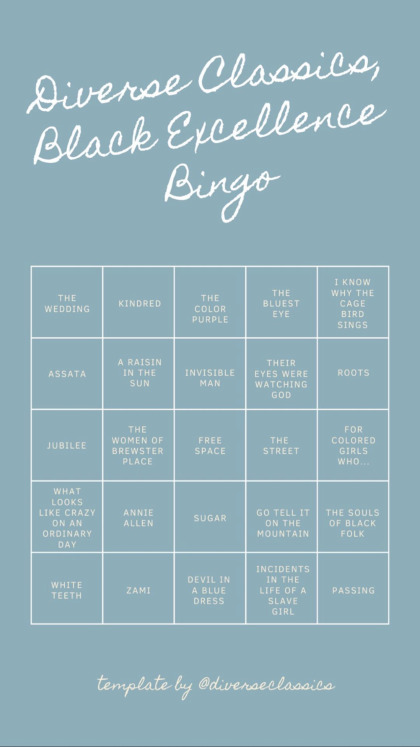
Further Reading
Here are some topics in Black America that need to be talked about. Obviously, this short list doesn’t begin to cover the traumas and injustices and realities that Black Americans face each day living in this country, but it is a good place to start to bring awareness to targeted and vulnerable people in this community. DISCLAIMER: Many of these issues deal with violence against Black people. Read the links at your discretion.
Violence against Transwomen of Color: MTV has recently launched a new show in their primetime slot on Wednesdays called MTV True Crime in which Dometi Pongo, the host, investigates crimes against young people, largely people of color. The show is hard to watch at times, but it brings a lot of light to issues that the modern American teenager faces, especially when they are from marginalized groups. One episode covers the murder of Kedarie Johnson, a gender-fluid teen in Iowa in 2016. The episode largely focuses on Kedarie’s murder, but also highlights a major issue in the Black Community today — violence against transwomen and gender non-conforming people. Often, the woman or person’s race and gender identity puts them at greater risk for violence, and their murders are not being solved, reported on, or brought to public attention.
Books in Prison: Reading Just Mercy by Brian Stevenson already had the prison system on my mind, and then articles began to come to my attention that discussed the censorship and banning of books in prison, which appear to be largely racially motivated. Toni Morrison, James Baldwin, and history books about racism in America are among those on banned lists across the country. Obviously, being such a huge proponent myself of freedom to read, this was a big issue for me. People in the prison system not only still have the right to read and pursue learning and education and art, but they have the right to access stories that resonate with them and reflect their experience and identity. The Equal Justice Initiative has fought the courts in many cases and has gotten bans lifted on what books prisoners are allowed to receive in prison, but most states still have racially biased banned lists. If you are interested in donating books to prisons, check this link for a list of organizations you can support. To learn more about the history of racism in the prison system, check out Ava DuVernay’s documentary 13TH, which is currently available on Netflix.
Violence against Black children in schools: The Black body is safe almost no where in America. In schools, headlines recently have been bombarded with news about children of color, especially Black children, facing extreme and unbelievable violence in schools. Increasingly, this violence comes at the hands of police. All ages are risk: 6-year-olds, 11-year-olds, teenagers. Black youth are more likely to be arrested at school than any other group. This report from an activist group called We Came to Learn reports on the history of violence against Black children in schools, highlighting that our current situation stems from segregationist beliefs and practices. The violence is not only physical: ‘spirit-murdering‘ of youth of color takes place when school systems, teachers, and administrators denigrate the identity and experience of their students in a racially discriminatory way. This action kit by We Came to Learn can provide you with resources and support for fighting racial discrimination against children in your schools.
I hope you enjoyed this month’s reading as much as I did. I got around to books that had been on my list forever, discovered new favorites, and learned more about the experience of my Black siblings in America. There is so much work to be done. Let’s get going!
Black America: Wrap-up! I hope everyone had an informative and reflective Black History Month! This month for the Own Voices Global Reading Challenge we read for Black America (#ownvoices selections from Black American authors).
#black america#black authors#black history month#classics#georgia authors#southern literature#wrap-up
0 notes
Text
Books I'll Love Forever
I can't for the life of me remember which book caused me to fall madly in love with books but I'm very glad I did. So to spread my absolute love of books, here are some of the ones I've read a hundred times and to this day still fall in love with every single time. ( In no particular order) P. S. I have a habit of loving a book even more if it totally and completely breaks my heart. • If I Stay by Gayle Forman As the first book that ever actually made me cry, this story will always hold a special place in my heart. At first glance it seems to be nothing more than a tragic love story but it is so much more. This story is about the love of a family and it tries a new angle on the idea of loss. Mia's story is equal parts heartbreaking and heartwarming. • The Perks Of Being A Wallflower by Stephen Chbosky This book is everything. I read this for the first time in 10th grade and I'd never found a character so relatable before. This book is perfect for a coming of age novel and it is strikingly real. Despite never really being in any of the situations myself, it is written in a way that resonates. • We Were Liars by E. Lockhart This is in the running for my all time favourite book. This book is written so beautifully and so well that despite how many times I've read it, I still can't find a way to predict the twist that broke my heart. The language is also so perfect that I often find myself getting lost in it. • Away We Go by Emil Ostrovski Admittedly I only bought this book because of the colourful cover and the Peter Pan references but I've never been more thankful for my quick judgment. This book is a story of loving someone who loves someone else, who loves someone else, etc. Basically no one is loved by who they want to be loved by and that's not even the most heartbreaking thing about their lives or lack thereof. This book broke my heart in almost every chapter. • I'll Give You The Sun by Jandy Nelson This is the book that made me fall in love with the name Jude for a girl. Told in two different perspectives in two different times this book will leave you feeling both content and sad but you'll fall in love with the characters who are just trying to find their way. • The Strange And Beautiful Sorrows Of Ava Lavender by Leslye Walton When I first started reading this book my first thought was "umm…what?", but surprisingly it didn't turn out how I thought it would. This story is just as the title implies, strange and beautiful sorrows, but it is so beautifully written and the story is so mesmerizing that you'll forget about all the strangeness and fall in love with the beautiful. • Simon Vs The Homo Sapiens Agenda by Becky Albertalli Full disclosure this is my favourite book that isn't heartbreakingly tragic. It is equally funny, meaningful, and sad. It shows insight into the mind of a closeted gay teenager threatened with being outed but it surprised me how subtly it was placed into the the story. Most of this book just made me laugh and towards the end it made my heart hurt but the real reason I love this book is because of the beautiful messages within it about race, sexuality, friendship, and life. • The Impossible Knife Of Memory by Laurie Halse Anderson Post traumatic stress disorder is a common diagnosis in war veterans but is often brushed aside or overlooked. This book tells the story of a daughter who's father is exactly that. It poetically describes what it is like to have a loved one live with the mental illness without sugar coating it too much. I don't know who my heart broke for more; the daughter or her father. • Me And Earl And The Dying Girl by Jesse Andrews The title pretty much gives away the whole plot of the book but what it doesn't tell you is how totally random, weird, funny and heartbreaking the story truly is. A lot of times I had to put the book down and say "what the fuck?", because a lot of this plot is questionable, but all in all it's a very good read and it's very subtle about it's heartbreak. • Me Being Me Is Exactly As Insane As You Being You by Todd Hasak-Lowry This book is definitely not for everyone, it certainly took some getting used to for me, not because of the story itself but how it's formatted. The book is written entirely in lists. Yes lists. Every "chapter" starts of with a title like "4 Things I Noticed In The Span Of 30 Seconds" and then will go on to list them. The story is a little weird but it's an interesting read. • Two Boys Kissing by David Levithan You might recognize the authors name as he co-wrote Will Grayson Will Grayson with John Green but this book is probably not what you're expecting. There are three different stories being told but they're being told by the same person, or people I guess. The narrative is in the perspective of all the people who have died from AIDS looking down at the world and watching these stories play out. It's definitely worth the read. • All The Missing Girls by Megan Miranda Honestly this book made me remember why I have a love hate relationship with mystery novels. This books starts off at the present time and the jumps to 15 days in the future. If that's not infuriating enough it then proceeds to go backwards from day 15 to day 1 in order to piece together the mystery from the present and a similar one 10 years in the past. Unfortunately I couldn't put it down. • The Rest Of Us Just Live Here by Patrick Ness I don't know about you but I've always wondered what happened to the people who were just kind of there for the drama but didn't play a role in it. Like in the Harry Potter books hundreds of kids attended Hogwarts but only like 10 of them were actually relevant to the plot. What about the rest of them? This book is them. Not literally them, this is not a Harry Potter book, but it is in the perspective of the other guys, well four of them at least. They're very away of everything that happens and the treat it like it's a normal occurrence, like the vampires attacking was just another day for them. • We Are All Made Of Molecules by Susin Neilsen As a child of a broken family this book was very relatable for me despite the characters being younger than me. Blended families can be a weird change and it's not always as easy as it may seem and I think this book beautifully shows how much of a struggle it really can be. • A List Of Cages by Robin Roe This book deals with abuse and some parts made me physically sick to my stomach. One of the main characters is portrayed as innocent in every way and I'm still not sure whether that makes it worse or not. There are also some very beautiful parts in this book and that's part of the reason I couldn't put it down. • Eleanor & Park by Rainbow Rowell There are not enough words to describe how I feel about this book. It is about defying stereotypes, discovering who you are, falling in love, being set free, being comfortable with yourself, and so so much more. Many of my friends will say that this is their all time favourite book. Very strong recommendation for this breathtaking story. • Aristotle And Dante Discover The Secrets Of The Universe by Benjamin Alire Sáenz Of all the books I've read this is the book I can quote the most. I fell in love from the very first page and the story never let me forget it. This story is about growing up, but at the same time it's not. It's about all the things the world has to offer, you just need to find the right person to show you. I gave my whole heart to this book and I still don't regret it. • It's Kind Of A Funny Story by Ned Vizzini I committed a serious crime with this story; I watched the movie first. Thank goodness the book was 1000x better because wow that movie, while still very good, was a train wreck. Craig's story is so breathtakingly honest and pure that it helped me understand myself a little bit more. It's alright to not know what's going to happen, just focus on what's happening now. • Suicide Notes From Beautiful Girls by Lynn Weingarten Spoiler alert: to the best of my knowledge this book did not contain a single suicide note that I can remember. Mostly this book is focused on the why but not in the normal way. It's not why did she kill herself, it's why did she kill herself that way. Friendship is a blessing and a curse because you might think you know someone but you might not know them at all. Honestly this book makes me so angry because despite the many conversations I've had with my friends we still haven't come up with a solid understanding of the ending. Please help. • Everything, Everything by Nicola Yoon Again this is one of those novels that sweeps me off my feet with the beautiful imagery in the language. I can practically feel myself in the story and crazy twist at the end is not something I ever could've predicted. It's an easy story to love. • Beautiful Disaster by Jamie McGuire I read this book in 7th grade which admittedly was wayyyyy to young for the type of content in this book. Unlike most of the previous books this one is a little more your normal romance book. Two college kids make a deal to be friends, fall in love, have a bunch of fights/breakups, etc. I know what you're thinking, "Why is this book even on the list?" To be honest I debated for a long time whether or not to include it but I ultimately decided that it is still one of my favourite books because Travis and Abby are just too damn cute. • Remember To Forget by Ashley Royer This is the book that got me hooked on Wattpad. For those of you who don't know it's an app/website where people can write and post stories for anyone to read as long as they have an account, don't worry it's free :). This book, like a lot of Wattpad stories, started out as a Five Seconds Of Summer fanfiction but was rewritten and edited when it actually got published. Yes I do read 5SOS fanfic every now and again and yes I was obsessed for a while but now most of the stories I read are regular teen fiction and trust there are some amazing writers out there. If you want to get the app, or already have it, and are looking for some reading suggestions feel free to ask :) This book is about moving on a letting go and realizing that it's okay to let people help you. • History Is All You Left Me By Adam Silvera As a story that broke my heart approximately 2 pages in it will always be a story I'll love. The plot focuses on Griffin and jumps between the past and present telling stories of his life with and without his ex boyfriend. Beautifully written, heartfelt, and tragic this novel is everything.
2 notes
·
View notes
Photo

I read Embassytown on the recommendation of two literary ladies who raved about it and said it was a great fit for someone who appreciates words and language. The book was different than I expected, even after hearing their initial explanations, because it takes surprising twists and turns within the concept and the world it establishes. I find it very satisfying to read academic genre fiction. I felt this way about Colson Whitehead's Zone One. Melding higher-order thinking and ideas about linguistics and science with the fantastical is a niche or a sub-genre that I haven’t experienced enough. Maybe more exquisitely written, highly academic science fiction exists than I know about? I hope to find more.
Early on in this book, I appreciated the way Miéville didn't belabor explanations of his world. Instead, he dropped us into the middle of a scene, the middle of political machinations, and he didn't feel the need to define his terms, demonstrate how his invented world worked, or explain the tech that characters comfortably used. I like this approach in science-fiction and fantasy: the fully-realized world that we get to step into without the labor of explanation. Even if we don't understand everything at first, this approach still feels more real and believable. This made for a very compelling beginning of the book for me. I know I differ in this way from many readers; I don’t want explanation and prefer the mystery and complexity of plot and theme. I happened to read Amazon reviews of the book today, after I finished it and was looking up Miéville’s other works to see if I might want to check out The City & The City, and I saw several reviews criticizing the pace of the book and its incomprehensibility over the first 50 to 100 pages. I did feel like the book dragged between the middle climactic section (the death of Surl/Tesh-echer) and protagonist Avice’s revelation at the end of the book that leads us into an exciting sprint to the finish. There's a fair amount of time devoted to the downfall and decay of Embassytown and the struggles of the city in the face of the Ariekei addiction. This part of the book felt oddly detached to me, as if it were trying too hard to impress upon us the seriousness and the reality of a slow meltdown of order. It was hard to stay interested here compared to the beginning when I was engaged by the unexpected and the unexplained.
I think part of that feeling of suspension in the latter half of the book was due to the departure from the theme of “evolving the lie” to instead focus on the addiction of the Ariekei. I was so sure that that the evolution of lying was going to come up again (in the way plot inherently ties up loose ends in a novel) that I kept waiting for that resolution, which didn’t come until surprisingly late in the book. This feeling of suspension two-thirds of the way through was also related to the way in which I connected, or didn't connect to, the characters in this book.
Lack of connection with the characters was another criticism of the Amazon reviews which, unlike complaints of complexity or ambiguity, I felt resonated with me. I didn't have a lot of feelings about our protagonist. She comes off as a very self-sufficient and open-minded woman, someone who's a survivor rather than rather than a heroine. I like that in a female protagonist, but much of her character was also so fluid and open that she felt void of emotion. I never believed in any of her romantic relationships and a variety of them are critical to the plot of the book. I couldn't quite tell if that was just her character and the point was being made that men like Scile, Vin, and Bren may have loved her while she felt lukewarm toward them. At some point she must have loved her husband Scile. But did she grow to hate him? I couldn't believe in her hatred, which seemed diluted and directionless. I didn’t feel her emotions or understand her thinking, so she seemed more like a placeholder for me--a protagonist through which to experience events directly, rather than a character I could see interacting with the world. The sensation was that I was her: l was looking through her eyes at the rest of the world which was somehow depicted vividly compared to the portrait of our protagonist. But always in the middle of the narrative was the strange blank space that was our protagonist.
The odd feeling of suspension I experienced two-thirds of the way through the book was partly because the focus shifted from the characters that I thought were the most engaging: the individual, named Ariekei. The vividness of the Ariekei does reflect the focus of Ava Benner Cho, our placeholder protagonist, because she is most interested in the Ariekei (more so than her human friends, lovers, and allies). The Ariekei have a feeling of mystery and allure for Avice, which is communicated to us, the readers. I cared the most about Surl/Tesh-echer and Spanish Dancer of anyone in this book. I believed more deeply in the relationship (friendship?) between Avice and Spanish Dancer (despite its mention in only a handful of lines) than I did in the relationships between Avice and any of her human lovers or friends. When Avice leaned against Spanish Dancer or pointed at it and it pointed back at her, those moments of connection seemed so impossible across species that couldn't share a language, and yet learned to communicate. That was what was miraculous and emotional about this book, the relationship-heart of the book.
As I write this, I wonder whether it was intentional that Avice’s human relationships were so bland in contrast to the sensitivity of her interactions with the Ariekei? I did like early portions of the book that revealed Avice’s character and mindset by showing her childhood and how it shaped her time as an immerser in “the out.” These glimpses into the larger context of the world beyond Embassytown were helpful in understanding the political machinations that brought EzRa to Embassytown, but these politics felt underdeveloped. Bremen control is a continuous looming threat to the autonomy of Embassytown, but the threat itself always seems distant. We don’t see the negative affects of Bremen colonialism (other than the addiction of the Ariekei...and Bremen didn’t premeditate that outcome, which destroyed their interests, as well). We don’t see specific Bremen agents enacting violence. Only Wyatt, a sort of figurehead for Bremen, wields any Bremen authority, and yet he seems trivial in the book as a whole. The appearance of EzRa is the result of Bremen's schemes, strange as this plan (before it backfired) seemed to be: Bremen hopes to slowly assert their power within Embassytown with the ultimate goal to take over the structure of the Ambassador system and turn the city into a launching pad to the new frontier. The development of EzRa, a single Bremen-controlled Ambassador, is done with such studied effort and care over years that it seems pointless. Why didn’t Bremen take over Embassytown by force? Is it too difficult to navigate through the immer? Why is this slow infiltration of a system required for this small community? Is it the Ariekei, and not the Embassytowners, who Bremen is dealing with lightly?
Ultimately, the most effective and intriguing part of this book is the premise and the way that is developed over the course the book. I’m critical of the limited emotionally investment in the relationships within the novel and political narratives, but, on a conceptual level, this book was repeatedly surprising and stunning. I loved the idea that war could take place within language--language could hold such weight that what we are able to say and not say, and communicate and not communicate, could shift whole political and social systems, as well as redefine the ways in which beings interact across cultures, races, and species. Here is the nuanced-heart of the book. The evolution of “the lie” and the lying faction of Surl/Tesh-echer is beautiful, as it unfolds suddenly that this “project” is both an intellectual curiosity and a very real threat. It's an intellectual dream that costs Surl/Tesh-echer his life. And this final judgment is enacted through another rebel while the people and beings in power witness, without comment, this very public execution.
I often felt I needed to stretch my mind to grasp the linguistic concepts: language without signification (Ariekei language) that directly references an exact point in the world versus language as indicators (all known real languages) that can be applied inventively across situations. Without signification, could language make the world and the world make language? It's an intoxicating concept for anyone who writes and believes in the power of words. And it’s very rewarding to read a book that centers on the clash of politics and language where the very nature of language becomes a fantastical feat of imagination and linguistic study. I read, I wondered: why hasn't someone else written about this topic before? Why hasn’t someone else made language the place of the battle? In imagining a distant future in which humans have contact with other life in the universe, why wouldn't the great source of tension be our ability or inability to communicate? We know that in the globalized world today communication is something that we rely on in order to keep peace, navigate economies, and share artistic ideas.
While this book is so inventive terms of language, I also enjoyed the more familiar conventions of a science fiction world, such as inventive technology. The biorigged world of Embassytown is incredible--houses that grow ears when they need them, weapons made partly of terre tech and partly of manufactured life, the incredible production of the Ambassadors through genetics and conditioning--all these things, the more familiar inventions in the realm of science fiction, were very charming in themselves and fully realized. There could be a different version of this book in which the main conflict centered around the Ambassadors and the ethics of their production. That might have been a more familiar science-fiction dystopia, in which a more heroic heroine might struggled for the Ambassadors’ liberation. The struggle, instead, takes place within language and has a “trickle-down effect” of restructuring the world. I think we so often try to find the language we need for a particular situation, learning language, adapting, or evolving it, based on the situation. In this book, influence flows in the other direction, which probably is also the case in our world more often than we acknowledge.
1 note
·
View note
Link
November 29, 2019 at 07:00AM
List season has hit particularly hard this year, as the end of our first full decade of social media immersion has culminated in a multi-month spree of ranking and revisiting the likes of which humanity has probably never seen before. So I feel compelled to open by thanking you, the reader, for giving yet another highly subjective hit parade your attention.
My hope is that along with a few of the zeitgeisty critical darlings (Fleabag, Watchmen, Succession) you’re sure to find in every other top 10 of 2019, this list will point you in the direction of some equally wonderful series (Vida, David Makes Man, Back to Life) that haven’t gotten the shine they deserve. What you won’t find here, incidentally, is anything from the initial slate of shows on brand-new streaming services Apple TV+ or Disney+. Whether that disappointment turns out to be a pattern or a fluke, only time will tell.
10. Back to Life (Showtime)
Few characters have embodied the saying “you can’t go home again” as fully as Back to Life creator Daisy Haggard’s Miri Matteson. Out on parole after spending half her life in jail for a crime she committed at age 18, Miri returns to her small English hometown—not because she’s missed the place, but because she has nowhere to go but her parents’ house. While enduring harassment at the hands of neighbors who will never forget what she did, she struggles to find work, companionship and peace. From the producers of Fleabag, this quieter, gentler traumedy weighs Miri’s crime against the less extreme but more malicious transgressions of her family and friends. It poses the question of whether anyone who pays their debt to society really gets a fair chance to start over—and it suggests that you can tell a lot about a community by getting to know its scapegoats.
9. When They See Us (Netflix)
Ava DuVernay is the rare popular artist fueled by an irrepressible optimism about building a better future as well as righteous anger about the past and present. She brought both of these defining traits to bear on this four-part drama about the Central Park Five—whom her miniseries rechristened the Exonerated Five. Along with exposing how and suggesting why a broken New York City criminal justice system was so eager to vilify blameless children of color in the aftermath of a monstrous act of sexual violence, DuVernay and her stellar young cast worked with the real Five to create multifaceted portraits of regular kids with hopes, ambitions and communities that suffered as a result of their incarceration. And she found echoes of their story in the current movement against mass incarceration and in the presidency of Donald Trump, who stoked public fury at the boys. When They See Us celebrates the righting of a grievous wrong while acknowledging that no vindication, or remuneration, could fully heal such deep wounds.
8. Watchmen (HBO)
For those of us who haven’t enjoyed our culture’s never-ending superhero craze so much as endured it, the news that the most prestigious of all prestige cable outlets was adapting a DC Comics book sounded kind of like a betrayal. Et tu, HBO? But we should never have doubted The Leftovers creator Damon Lindelof’s ability to make Alan Moore’s brilliant, subversive 1980s classic resonate more than three decades later. Instead of revisiting the Cold War, Lindelof set his Watchmen in an alternate 2019 where the events of the comic are canon, Robert Redford (yes, that one) has been President for decades and a white supremacist group called the Seventh Kavalry is slaughtering police who are loyal to the liberal administration. Into this mess rides masked vigilante Sister Night (Regina King, in the would-be hero role she’s long deserved), a cop who is supposed to have retired from crime-fighting. There is (or should be) enough carryover from Moore’s original to appease its cult fandom, but the show is at its best when contending with our confused, misinformed, politically polarized current reality. And in that respect, it’s every bit as intelligent, provocative and mysterious as it is entertaining.
7. Undone (Amazon)
Fans worried that BoJack Horseman mastermind Raphael Bob-Waksberg would turn out to be a one-hit wonder could take comfort in this wildly imaginative sci-fi dramedy that he co-created with Kate Purdy, about a disaffected young woman (Rosa Salazar’s Alma) who narrowly survives a catastrophic car crash. In hospital-bed visions tied to her sudden physical trauma and preexisting mental illness, Alma reunites with her long-dead father (Bob Odenkirk), learns that he was murdered and allows him to guide her on a time-travel mission to prevent the crime from happening. Yet Undone is more than just a high-concept mystery; it’s a journey into human consciousness, a beautiful example of Rotoscoped animation and a subtle meditation on family, identity and spirituality.
6. David Makes Man (OWN)
The success of Moonlight sent ripples through Hollywood, elevating writer-director Barry Jenkins and a cast including Mahershala Ali, Jharrel Jerome and Janelle Monáe to the highest echelon of their art form. It also opened industry doors for MacArthur honoree Tarell Alvin McCraney, who wrote the play on which the film was based. This year he unveiled David Makes Man, a lyrical drama about a smart, troubled 14-year-old (Akili McDowell, astonishing in his first lead role) in the Florida projects who’s struggling to get into a prestigious high school and avoid being drafted into a gang, while mourning a mentor. Though it shares a lush aesthetic and many themes—black boyhood, complicated role models, queer identity—with Moonlight, the expanded format allows McCraney to explore the people around David. His privileged best friend (Nathaniel McIntyre) suffers abuse at home. His gender-queer neighbor (Travis Coles) takes in runaway LGBT teens and plays a delicate role in the local ecosystem. And his single mother (Alana Arenas), an addict in recovery, holds down a degrading job to keep the bills paid. This isn’t just the old story of excellence and poverty battling for the soul of one extraordinary child; it’s the story of a community where both qualities must coexist.
5. Lodge 49 (AMC)
At least once a year, a series too smart for prime-time gets canned even as network execs re-up long-running bores like NCIS for 24 more functionally identical episodes. In 2019, it was Lodge 49 that ended up on the wrong side of the equation. A loose, semi-stoned account of a young man (Wyatt Russell’s Sean “Dud” Dudley) treading water in the wake of his beloved father’s death, the show expanded over the course of its first season into an allegory for the isolation of contemporary life. The Southern California landscape around Dud, an affable dreamer, and his self-destructive twin sister (Sonya Cassidy) had been scarred by pawn shops, breastaurants, temp agencies, abandoned office parks. Refuge came in the form of the titular cash-strapped fraternal organization, where Dud found two precious things late capitalism couldn’t provide: a sense of community and a mysterious, all-consuming quest. Both propelled him and his cohorts to Mexico in this year’s funny, bittersweet second season; perhaps sensing the end was near, creator Jim Gavin’s finale provided something like closure. Still, the show—which is currently being shopped to streaming services—has plenty left to say. Here’s hoping the producers find a way to, as the fans on Twitter put it, #SaveLodge49.
4. Vida (Starz)
In its short first season, creator Tanya Saracho’s Vida assembled all the elements of a great half-hour drama. Mishel Prada and Melissa Berrera shined as Mexican-American sisters who come home to LA after the death of their inscrutable mom, Vida—only to learn that the building and bar she owned are on the verge of foreclosure. It also turns out that Vida, whose homophobia destroyed her relationship with Prada’s sexually fluid Emma, had married a woman. Meanwhile, their angry teenage neighbor Mari (Chelsea Rendon) raged against gentrification. These storylines coalesced to electrifying effect in this year’s second season, testing the sisters’ tense bond as they found themselves in the crosshairs of activists who saw their desperate efforts to save the family business as acts of treachery from two stuck-up “whitinas.” Thanks largely to the talented Latinx writers and directors Saracho enlisted for the project, Vida brings lived-in nuance to issues like class, colorism and desire—yielding one of TV’s smartest and sexiest shows.
3. Succession (HBO)
Right-wing tycoons and their adult children have gotten plenty of attention in the past few years—most of it negative. So why would anyone voluntarily watch a show in which the nightmare offspring of a Mudoch-like media titan (Brian Cox) compete to become his successor? A rational argument for all the goodwill around Succession might point out the crude poetry of its dialogue (from creator Jesse Armstrong, a longtime Armando Iannucci collaborator), the fearlessness of its cast (give Jeremy Strong an Emmy just for Kendall’s rap) and the knife-twisting accuracy of this season’s digital-media satire (R.I.P. Vaulter). But on a more primal level, one informed by the increasingly rare experience of watching episodes set Twitter ablaze as they aired, I think we’re also getting a collective thrill out of a series that confirms our darkest assumptions about people who thirst for money and power. It’s a catharsis we may well deserve.
2. Russian Doll (Netflix)
To observe that there was a built-in audience for a show created by Natasha Lyonne, Amy Poehler and Leslye Headland in which Lyonne starred as a hard-partying New York City cynic might’ve been the understatement of the year. But even those of us who bought into Russian Doll from the beginning could never have predicted such a resounding triumph. In a story built like the titular nesting doll, Lyonne’s Nadia Vulvokov dies in a freak accident on the night of her 36th birthday. The twist is, instead of moving on to the afterlife or the grave, she finds herself back where she started the evening, at a party in her honor. Nadia is condemned to repeat this cycle of death and rebirth until she levels up in self-knowledge—a process that entails many cigarettes, lots of vintage East Village grit and a not-so-chance encounter with a fellow traveler. Stir in a warm, wry tone and a message of mutual aid, and you’ve got the best new TV show of 2019.
1. Fleabag (Amazon)
Fleabag began its run, in 2016, as a six-episode black comedy about a scornful, neurotic, hypersexual young woman caught in a self-destructive holding pattern of her own making. The premise didn’t immediately distinguish creator and star Phoebe Waller-Bridge as all that different from peers like Lena Dunham, Aziz Ansari and Donald Glover. But the British show’s execution was sharp, funny and daring enough to make it a cult hit on both sides of the Atlantic—and to anoint Waller-Bridge as TV’s next big thing. She went on to helm the exhilarating first season of Killing Eve, giving this year’s second and final season of Fleabag time to percolate. It returned as a more mature but, thankfully, no less audacious show, matching Waller-Bridge’s somewhat reformed Fleabag with an impossible love interest known to fans as the Hot Priest (Andrew Scott). The relationship offered a path to forgiveness for the kind of character most millennial cris de coeur have been content to leave hanging. By allowing Fleabag a measure of grace without sacrificing her life-giving vulgarity, Waller-Bridge conjured the realistic vision of redemption that has so far eluded her contemporaries—and closed out the 2010s with the decade’s single greatest season of comedy.
0 notes
Text
Sleuth Behind The Music on launching a New Album and building a music career
Melissa from Sleuth speaks with Jacqueline Jax on launching a New Album and building a music career in todays digital era. Discussions surround being an artist in Australia, staying inspired, consistent and establishing momentum for your album. Committing years to your development and then learning from the process. She also talks about allowing yourself to be vulnerable and connecting with your most authentic true self.
Listen to the Episode: https://anchor.fm/ava-live-radio/episodes/Sleuth-Behind-The-Music-on-launching-a-New-Album-and-building-a-music-career-e84vqf
Band Name: Sleuth
Person Interviewing: Melissa Francis
Song name: Empty Room
Music Genre: Electronica
I live in South-West Victoria, Australia
Link to play: https://www.dropbox.com/s/rgndkeksaazdcpa/Sleuth%20-%20Empty%20Room.mp3?dl=0
Empty Room is about a time when I was feeling extremely frustrated and angry. I’d tried to convince a potential colleague that I was a decent person - they had viewed me as competition, and had stonewalled me for months. Yet stupidly I’d kept trying, and getting shut down repeatedly in the face of their ‘solo show’. I couldn’t understand why they couldn’t see that my intentions were good - the truth was that they just didn’t want to!
Empty Room came from the ultimate realization that I couldn’t do anything about their lack of belief in my character or vision. I had given up so much of myself, and so much energy to prove to them that ‘there’s somehow sunlight breaking through’. I resonate strongly with the legend of the Phoenix rising from the ashes, never destroyed by the fire - so much so that I have it tattooed all over my back. Empty Room is for me as much a declaration of finally understanding the game being played, as also a cathartic expression of rage, war, and victory.
Empty Room draws very vivid musical images for the listener. There are elements of decay, ennui, sadness, and gloom - initially, the piano is used against a darker, industrial electronic beat with distorted bass, to show restrained feelings of anger and resentment. Whispers of shadows and layers of harmony give greater dimension to the idea of a forgotten, lonely, bare room. The piano is used again over the trance progressions of the song as it develops to show the splashes of ‘sunlight’ dancing on a cold floor.
The chorus lyrics “I’ll light you up” is a defiant challenge to shine in spite of others’ insecurities, in spite of everything. In life there will be some who hate you and who are intimidated by your brightness - so blaze all the more brightly and ‘light them up!’
To be able to write music is a real gift to me. It’s an opportunity for me to carefully mold and sculpt the image and message I want to show to the world - to an audience that is willingly listening and present. It’s an important opportunity to tell a story, share a lesson, to just exist exactly the way I choose to - to perform and exhibit that before an audience is a huge privilege. I am inspired by everything I am living in and around - lyrics for me are the articulation of my experiences, an opportunity to inject emotional perspective and reflection on areas of my life.
My debut album Umbra Anima is all about light and shadow, as the name suggests, and Empty Room is part of that album. I believe that the light needs the darkness to shine - that all parts of our existence and humanity should be embraced and searched and celebrated, fearlessly. There are some very dark and painful songs in this album, and releasing it was my way of making something good and beautiful come out of those experiences. Umbra Anima makes no apologies for its more uncomfortable moments. It’s my way of saying to the world ‘I am not afraid of anything anymore.’
What most inspires you?
As a songwriter, I get inspired by just about everything around me. I create music because it’s my gift and it’s important to use your gifts. I love seeing my kids writing music on our piano, and singing their random songs - I feel grateful that I can give them that example. Creative expression is what brings color and variety into our world - no two people see things the same way, it’s what makes life beautiful and brilliant.
How do you feel about the music business & being a musician today?
Being a musician today is a privilege - so many people don’t speak that creative language today, despite being in the audience - as a musician you get to define what they hear and be a part of the message that is given out!
The music business is something I’m pretty new at. There seems to be a real divide between growth on online worldwide streaming platforms, and growing local followers and fans. Perhaps this is part of being a musician in Australia, as we’re pretty remote, but I’m learning a lot about what I need to do to earn from my music with more local, live gigs as a primary focus, as well as promoting myself online. One thing I love about the more global aspect of the online music business is the opportunity to meet other artists to collaborate with, worldwide.
Website & social media links:
www.sleuthartist.bandcamp.com
https://www.facebook.com/sleuthmusician
instagram: @sleuthmusic11
Twitter: @sleuthmusic1
0 notes
Text
Linda Hutcheon in her work on adaptation comments on how “each manner (source text and adaptation) involves a different mode of engagement.” Expanding on how watching something is different than reading, than playing, than hearing, than living.
It’s hard to say why something had to be a film. Because the answer is a yes-and-no. I’ve been studying video games a lot recently because they fascinate me, and one thing I’ve noticed is how different the experience can be played-vs-seen. I’ve watched people play games I played and even that is different. ANd here is the the thing. Watching someone play The Walking Dead Game still works, it doesn’t have to be a game, it can be a cinematic experience. But. It’s not the same thing. Playing a game you typically gain a level of connection, subjectivity, intensity, and commitment. Watching the same game, you often instead have a more objective view, and a different kind of intensity and commitment, with the biggest gain being you see the player-character as more fully a character, instead of losing them in yourself, and the biggest loss being the step you take back from every other character. The Walking Dead Game doesn’t have to be The Walking Dead Game, but it isn’t the same experience if you view it. It’s cinematic. And a lot of the time the movies we love the most would work as something else, as a novel, as show, as a play, even a game—sometimes they are, adapted from one form to another, but they’re never ever the same thing. And the reason we love them so much as film is because there’s something about the way that specific film medium enables them to be told that resonates in us. Cinema.
Cinema means a lot of things. It means movies, it means theaters, it means premiers and Oscars and “artistic intent.” But that’s only a part of things. I really resonated with a quote from Ava DuVernay I read this semester, because I see cinema as she does. Branching, constantly reborn, and in the eyes of the beholder. “Yes, there’s certainly something about a cinematic experience in a traditional theater, but cinema has also become more about images expressing a certain feeling, mood, place and culture. I’ve had literally extraordinary experiences watching films in all different ways: Watching films on a lawn on a sheet. Watching films in beautiful theaters with pristine sound and picture quality. Watching in bed on my iPad. I’ve had transformative experiences watching a film at 30,000 feet, with the clouds going by and I’m under the blanket with my earphones in. “Cinema” is in the eye of the beholder. And I see it as something that’s morphing and growing and blossoming in different ways, as opposed to something that’s dying.”
I’m a film student. I know a lot people interested in film. And we don’t all want the same things, or believe in the same things, or love the same things. According to spectatorship theory, one of the theories I like best, people view cinema differently according to their backgrounds—a pretty self-evident cause-and-effect statement. We may all see cinema a little differently, but I think we’re all there because we love something. Which is the effect, I think, of cinema’s cause.
I talked about how The Little Mermaid influenced so many films and other forms of media since it came out, how the characterization, storytelling, visuals, bled down and seeped into other things. Just like things contributed to it, Norma Desmond for Ursula, Shakespeare for royal family dynamics, classic fairy tales, other Disney films, Broadway song storytelling tradition, visual storytelling in silent cinema. I first heard the term “bricolage” in a film adaptation class, and to be honest it still confuses me, but I like it. It was a Julie Sanders piece called Adaptation and Appropriation. In it one of the most memorable points she made was that "Texts feed off each other and create other texts, as well as other critical studies; literature creates more literature, art creates more art.”
Film is a reflector-board of other media. I think we absorb so much film growing up, we become a part of this process. We are texts feeding off other texts. And it’s not a bad thing. But that’s a big part of why and how cinema is handled is so important. Cinema influences us. It influences the people who make the things we see and buy and hear and know. Which can be a great tool, and a weapon, a megaphone, a window, a saving grace, a rally cry, a moment of peace, a threat. Overall, it’s a part of life, plain and simple, and not simple at all. The part that is simple is seeing the power in media. And to quote Spider-Man, created by a child of first generation Czechoslovakians and a Romanian-Jewish immigrant family’s boy, both of whom lived through World War II as young adults of races being hunted, “with great power comes great responsibility.”
I think that’s part of the dream. Of cinema. It certainly is for me. The possibility of having the power to wield responsibly. One of the nicest and most beautiful ways to lay an argument on the table, or give someone a light at the end of a tunnel. All of which I guess might sound a little dramatic, or typical, emotional, but it’s sincere. I think it’s important there are people like Sanders, writing her piece for a reason, for the passion of study of cinema. I think I am not such a study-hearted person. I enjoy analysis, but I tend to approach things from an emotional direction. Hopefully this is a strength as well as limitation, I believe it is both.
I was asked to talk about cinema as a whole, but especially my own thoughts on how it can “best be used.” I doubt my cinema is exactly the same as Erin’s, or Nick’s, or Emily, or Travis, or Will, or Chris, or Haley, or yours. Anyone’s. But I do believe we are there for the same reason, in a way. There is something about cinema that we all love, maybe not the same thing, but a lot of the time it is, or part of the same thing, and either way we all love some aspect, a part, of cinema. That’s why we pursue it. I know I always approach from an emotional perspective, but we’re picking “movies of my life” for reasons I expect all include inspiration, or connection, or sentiment. Maybe some of us just want to go into film as a career move, but somewhere back down the line it was because we saw a film that resonated and that love just grew into something that shifted a little. I remember quoting James John Griffith in a paper three semesters ago, saying “I am not so idealistic as to believe that producers do not produce films to make money or that such money changers can be driven from the theaters. But neither am I so cynical as to believe producers are the only real filmmakers.”
I have always been drawn to an in-spite-of-it-all idealistic realism. So that’s how I think cinema can “best be used.” Should be used. I think we all love something in cinema because, like my chosen film, there was something put into whatever movie we love that was meant to give, show, help, direct, change, amuse, comfort, confront, argue, reassure, fight, save, encourage, show, a thousand other verbs that can all be synonyms for loving, ways of loving. It’s about intent, I believe, as Vikar would say. I know I’ve used this quote in an assignment for you before, but I really like it. “I feel that there is nothing more truly artistic than to love people.” It’s a Vincent Van Gogh quote. Text feeds on texts. With great power comes great responsibility. I know not all films are like this, which is why it’s important to make ones that are. I think loving something is central, because it’s risky and hard and matters. And not only does text feed on text, but art begets art.
0 notes
Link
List season has hit particularly hard this year, as the end of our first full decade of social media immersion has culminated in a multi-month spree of ranking and revisiting the likes of which humanity has probably never seen before. So I feel compelled to open by thanking you, the reader, for giving yet another highly subjective hit parade your attention.
My hope is that along with a few of the zeitgeisty critical darlings (Fleabag, Watchmen, Succession) you’re sure to find in every other top 10 of 2019, this list will point you in the direction of some equally wonderful series (Vida, David Makes Man, Back to Life) that haven’t gotten the shine they deserve. What you won’t find here, incidentally, is anything from the initial slate of shows on brand-new streaming services Apple TV+ or Disney+. Whether that disappointment turns out to be a pattern or a fluke, only time will tell.
10. Back to Life (Showtime)
Few characters have embodied the saying “you can’t go home again” as fully as Back to Life creator Daisy Haggard’s Miri Matteson. Out on parole after spending half her life in jail for a crime she committed at age 18, Miri returns to her small English hometown—not because she’s missed the place, but because she has nowhere to go but her parents’ house. While enduring harassment at the hands of neighbors who will never forget what she did, she struggles to find work, companionship and peace. From the producers of Fleabag, this quieter, gentler traumedy weighs Miri’s crime against the less extreme but more malicious transgressions of her family and friends. It poses the question of whether anyone who pays their debt to society really gets a fair chance to start over—and it suggests that you can tell a lot about a community by getting to know its scapegoats.
9. When They See Us (Netflix)
Ava DuVernay is the rare popular artist fueled by an irrepressible optimism about building a better future as well as righteous anger about the past and present. She brought both of these defining traits to bear on this four-part drama about the Central Park Five—whom her miniseries rechristened the Exonerated Five. Along with exposing how and suggesting why a broken New York City criminal justice system was so eager to vilify blameless children of color in the aftermath of a monstrous act of sexual violence, DuVernay and her stellar young cast worked with the real Five to create multifaceted portraits of regular kids with hopes, ambitions and communities that suffered as a result of their incarceration. And she found echoes of their story in the current movement against mass incarceration and in the presidency of Donald Trump, who stoked public fury at the boys. When They See Us celebrates the righting of a grievous wrong while acknowledging that no vindication, or remuneration, could fully heal such deep wounds.
8. Watchmen (HBO)
For those of us who haven’t enjoyed our culture’s never-ending superhero craze so much as endured it, the news that the most prestigious of all prestige cable outlets was adapting a DC Comics book sounded kind of like a betrayal. Et tu, HBO? But we should never have doubted The Leftovers creator Damon Lindelof’s ability to make Alan Moore’s brilliant, subversive 1980s classic resonate more than three decades later. Instead of revisiting the Cold War, Lindelof set his Watchmen in an alternate 2019 where the events of the comic are canon, Robert Redford (yes, that one) has been President for decades and a white supremacist group called the Seventh Kavalry is slaughtering police who are loyal to the liberal administration. Into this mess rides masked vigilante Sister Night (Regina King, in the would-be hero role she’s long deserved), a cop who is supposed to have retired from crime-fighting. There is (or should be) enough carryover from Moore’s original to appease its cult fandom, but the show is at its best when contending with our confused, misinformed, politically polarized current reality. And in that respect, it’s every bit as intelligent, provocative and mysterious as it is entertaining.
7. Undone (Amazon)
Fans worried that BoJack Horseman mastermind Raphael Bob-Waksberg would turn out to be a one-hit wonder could take comfort in this wildly imaginative sci-fi dramedy that he co-created with Kate Purdy, about a disaffected young woman (Rosa Salazar’s Alma) who narrowly survives a catastrophic car crash. In hospital-bed visions tied to her sudden physical trauma and preexisting mental illness, Alma reunites with her long-dead father (Bob Odenkirk), learns that he was murdered and allows him to guide her on a time-travel mission to prevent the crime from happening. Yet Undone is more than just a high-concept mystery; it’s a journey into human consciousness, a beautiful example of Rotoscoped animation and a subtle meditation on family, identity and spirituality.
6. David Makes Man (OWN)
The success of Moonlight sent ripples through Hollywood, elevating writer-director Barry Jenkins and a cast including Mahershala Ali, Jharrel Jerome and Janelle Monáe to the highest echelon of their art form. It also opened industry doors for MacArthur honoree Tarell Alvin McCraney, who wrote the play on which the film was based. This year he unveiled David Makes Man, a lyrical drama about a smart, troubled 14-year-old (Akili McDowell, astonishing in his first lead role) in the Florida projects who’s struggling to get into a prestigious high school and avoid being drafted into a gang, while mourning a mentor. Though it shares a lush aesthetic and many themes—black boyhood, complicated role models, queer identity—with Moonlight, the expanded format allows McCraney to explore the people around David. His privileged best friend (Nathaniel McIntyre) suffers abuse at home. His gender-queer neighbor (Travis Coles) takes in runaway LGBT teens and plays a delicate role in the local ecosystem. And his single mother (Alana Arenas), an addict in recovery, holds down a degrading job to keep the bills paid. This isn’t just the old story of excellence and poverty battling for the soul of one extraordinary child; it’s the story of a community where both qualities must coexist.
5. Lodge 49 (AMC)
At least once a year, a series too smart for prime-time gets canned even as network execs re-up long-running bores like NCIS for 24 more functionally identical episodes. In 2019, it was Lodge 49 that ended up on the wrong side of the equation. A loose, semi-stoned account of a young man (Wyatt Russell’s Sean “Dud” Dudley) treading water in the wake of his beloved father’s death, the show expanded over the course of its first season into an allegory for the isolation of contemporary life. The Southern California landscape around Dud, an affable dreamer, and his self-destructive twin sister (Sonya Cassidy) had been scarred by pawn shops, breastaurants, temp agencies, abandoned office parks. Refuge came in the form of the titular cash-strapped fraternal organization, where Dud found two precious things late capitalism couldn’t provide: a sense of community and a mysterious, all-consuming quest. Both propelled him and his cohorts to Mexico in this year’s funny, bittersweet second season; perhaps sensing the end was near, creator Jim Gavin’s finale provided something like closure. Still, the show—which is currently being shopped to streaming services—has plenty left to say. Here’s hoping the producers find a way to, as the fans on Twitter put it, #SaveLodge49.
4. Vida (Starz)
In its short first season, creator Tanya Saracho’s Vida assembled all the elements of a great half-hour drama. Mishel Prada and Melissa Berrera shined as Mexican-American sisters who come home to LA after the death of their inscrutable mom, Vida—only to learn that the building and bar she owned are on the verge of foreclosure. It also turns out that Vida, whose homophobia destroyed her relationship with Prada’s sexually fluid Emma, had married a woman. Meanwhile, their angry teenage neighbor Mari (Chelsea Rendon) raged against gentrification. These storylines coalesced to electrifying effect in this year’s second season, testing the sisters’ tense bond as they found themselves in the crosshairs of activists who saw their desperate efforts to save the family business as acts of treachery from two stuck-up “whitinas.” Thanks largely to the talented Latinx writers and directors Saracho enlisted for the project, Vida brings lived-in nuance to issues like class, colorism and desire—yielding one of TV’s smartest and sexiest shows.
3. Succession (HBO)
Right-wing tycoons and their adult children have gotten plenty of attention in the past few years—most of it negative. So why would anyone voluntarily watch a show in which the nightmare offspring of a Mudoch-like media titan (Brian Cox) compete to become his successor? A rational argument for all the goodwill around Succession might point out the crude poetry of its dialogue (from creator Jesse Armstrong, a longtime Armando Iannucci collaborator), the fearlessness of its cast (give Jeremy Strong an Emmy just for Kendall’s rap) and the knife-twisting accuracy of this season’s digital-media satire (R.I.P. Vaulter). But on a more primal level, one informed by the increasingly rare experience of watching episodes set Twitter ablaze as they aired, I think we’re also getting a collective thrill out of a series that confirms our darkest assumptions about people who thirst for money and power. It’s a catharsis we may well deserve.
2. Russian Doll (Netflix)
To observe that there was a built-in audience for a show created by Natasha Lyonne, Amy Poehler and Leslye Headland in which Lyonne starred as a hard-partying New York City cynic might’ve been the understatement of the year. But even those of us who bought into Russian Doll from the beginning could never have predicted such a resounding triumph. In a story built like the titular nesting doll, Lyonne’s Nadia Vulvokov dies in a freak accident on the night of her 36th birthday. The twist is, instead of moving on to the afterlife or the grave, she finds herself back where she started the evening, at a party in her honor. Nadia is condemned to repeat this cycle of death and rebirth until she levels up in self-knowledge—a process that entails many cigarettes, lots of vintage East Village grit and a not-so-chance encounter with a fellow traveler. Stir in a warm, wry tone and a message of mutual aid, and you’ve got the best new TV show of 2019.
1. Fleabag (Amazon)
Fleabag began its run, in 2016, as a six-episode black comedy about a scornful, neurotic, hypersexual young woman caught in a self-destructive holding pattern of her own making. The premise didn’t immediately distinguish creator and star Phoebe Waller-Bridge as all that different from peers like Lena Dunham, Aziz Ansari and Donald Glover. But the British show’s execution was sharp, funny and daring enough to make it a cult hit on both sides of the Atlantic—and to anoint Waller-Bridge as TV’s next big thing. She went on to helm the exhilarating first season of Killing Eve, giving this year’s second and final season of Fleabag time to percolate. It returned as a more mature but, thankfully, no less audacious show, matching Waller-Bridge’s somewhat reformed Fleabag with an impossible love interest known to fans as the Hot Priest (Andrew Scott). The relationship offered a path to forgiveness for the kind of character most millennial cris de coeur have been content to leave hanging. By allowing Fleabag a measure of grace without sacrificing her life-giving vulgarity, Waller-Bridge conjured the realistic vision of redemption that has so far eluded her contemporaries—and closed out the 2010s with the decade’s single greatest season of comedy.
0 notes
Text
10.21 New Music Monday Release Radar with Jacqueline Jax
Musicians create music to express their creativity and skill. Listening to new music is an experience and an opportunity to connect with that creative spark. Explore some exciting new music from creators all over the world recently discovered by our host Jacqueline Jax as she searches the far corners of the globe for talented songwriters and music creators who are telling their truth to bring the listener a unique experience.
SUBSCRIBE to our broadcast here: www.wavve.link/avaliveradio
Listen to the Show: https://anchor.fm/ava-live-radio/episodes/10-21-New-Music-Monday-Release-Radar-Mixed-genre-playlist-with-Jacqueline-Jax-e7t8ub
Artist: Miranda Easten
New Release: Stars And Dreams
Genre: Pop
Located in: Christchurch City, New Zealand
This song reminds me of warm Summer nights spent star-gazing with good company. The music I am creating at the moment is therapeutic and honest. I'm not afraid to write about how I am feeling or what's catching my soul on fire. My new album is a mixture of biographical lyrics as well as observations I've made about current events or people and stories I've heard of.
I create music because...
creating something from nothing makes me happy. I love how I can start the day with a blank piece of paper and by mid-afternoon I have created something tangible and shareable. After the music is created I will put it out there and move onto the next creation right away. I would be quite lost without a pen, paper, and guitar!
Next...
I am currently recording my debut album (and several music videos) with some amazingly talented musicians and good friends. I feel very blessed to do what I love every day.
LINKS:
https://open.spotify.com/artist/6tPllDnDr6rB7CS5diguqw
https://www.facebook.com/mirandaeasten
https://twitter.com/MirandaEasten
https://www.instagram.com/mirandaeasten
Artist: CEEM
New Release: Remedy
Genre: Electro Pop
Sounds like: Black Coffee
Located in: Seattle, Washington
This release is important as it's the final single before the release of the full-length Cruel World on Oct 18th. The main theme of Cruel World is a moody and brooding blend of pop and electronica, and as an artist, the project was inspired by so many losses from 2016.
'Remedy' is a sequel to another song I wrote called 'Unbreakable' written in response to living through the 2016 terrorist attack in Nice France on Bastille day. Coming back from that trip feeling shattered and confused, the song helped put his life back together.
As cathartic and healing as writing Unbreakable was, he still felt that need to face his ultimate fear and go back to the scene of the crime. I went back to Nice July 2019 for Bastille day, alone this time, and retraced the steps and the horror that took place. I wanted to go back and finish writing Cruel World, but for the first four days I was there, the words wouldn’t come, there was some sort of glitch in my brain. I would put pen to paper and write but nothing felt authentic or genuine until I made it through Bastille day.
LINKS:
Spotify - https://open.spotify.com/track/2QoZZRRxGzMGqvj1RYXgfP?si=wyY-B755TJCDJ25JRtYbGQ
Twitter - @musicbyceem
Facebook - https://www.facebook.com/musicbyceem
Instagram - https://www.instagram.com/musicbyceem
Artist: A Permanent Shadow
New Release: Now
Genre: Indie, electronic, rock, synthpop, eighties
Sounds like: David Bowie, Moby, John Grant, Peter Gabriel, LCD Soundsystem
Located in: Barcelona, Spain
The music we are creating is...
thoughtful, deep, dark yet optimistic, powerful, beautiful, catchy, hopeful, and uplifting. "Now" is a carpe diem song with which we've written a note to ourselves and other people to stop worrying about the future and thinking about the past. Life is happening NOW and we should take it by the horns and be happy.
Music is what I think about 83% of the time...
It's what I've always wanted to do and one of the very few things in life that give me total fulfillment. I adore the creative process. It is an absolute joy to write a song and then record it in the studio and observe how it is gaining shape. Apart from being a musician, I am also a fervent music fan. I never grow tired of discovering new bands and digging deeper into the catalogs of the real greats.
Right now we are...
We have just launched our first album "Songs of Loss" which the song "Now" can be found on. We are busy with promotion and also are preparing a one-off live show to be webcast soon.
LINKS:
https://www.reverbnation.com/apermanentshadow/song/31155111-now
https://open.spotify.com/track/3ksn7QYDyqpFZ7rsounxsT
https://www.twitter.com/apermanentshad1
https://www.facebook.com/apermanentshadow
https://www.instagram.com/apermanentshadow
Artist: Sleuth
New Release: Empty Room
Genre: Genre: Electronica, sub-genre: techno/trance.
Sounds like: Nine Inch Nails, Tori Amos, Portishead
Located in: Portland, Victoria, Australia
'Empty Room' has recently been described by one reviewer as an ‘experience.’ This song takes the listener inside my journey to a time when I was feeling extremely frustrated and angry. I’d tried to convince a potential colleague that I was a decent person after they had openly condemned me to others. They had stonewalled me for months because I was viewed as a competitor. Yet stupidly I’d kept trying, and kept getting shut down repeatedly in the face of their ‘solo show’. I couldn’t understand why they couldn’t see the same potentials that I could, or see that my intentions were good. The truth was of course that they just didn’t want to!
This song came from the ultimate realization that I couldn’t do anything about their lack of belief in my character or vision, despite having given up so much of myself to prove ‘there’s somehow sunlight breaking through’.
I am someone who resonates strongly with the story of the Phoenix rising from the ashes, never destroyed by the fire, so much so that I have a large Phoenix tattooed all over my back.
This song is a declaration of finally understanding the game that was being played, as well as a cathartic expression of rage, war, and victory. Empty Room draws very vivid musical images for the listener.
The Album...
'Empty Room' was released as part of my debut album Umbra Anima - meaning Shadows and Light. The album is a celebration of both the lighter and darker elements of my journey - not everything that we experience is pretty or aesthetically pleasing to all, but that doesn’t mean that it shouldn’t teach us, or have value, or be recognized and celebrated. Those sentiments of the album are perhaps best expressed in my song Empty Room - a song about blazing defiantly in spite of others’ negativity and fear.
LINKS:
https://open.spotify.com/album/0VlFahuWVPQp5GlCi6niSn?si=9bx2JpchQnm2vRdWyd4yBw
Twitter: @sleuthmusic1
Facebook: https://www.facebook.com/sleuthmusician
Insta: @sleuthmusic11
Bandcamp: www.sleuthartist.bandcamp.com
Artist: Nathan Lewis Thomas
New Release: The Melody
Genre: Pop: Singer-Songwriter / Alternative Pop
Sounds like: Hozier / John Mayer / James Bay / Tom Misch
Located in: Warrington, Cheshire, United Kingdom
This song is an exploration of the idea of music as a form of escapism. The Melody's stomping rhythm, rich vocal harmonies, and catchy hooks are sure to draw you in.
The music I am creating is the result of years spent honing my sound to find a style that truly represents what I'm about musically. I love compositions with a strong harmonic arrangement and I like to think that I have incorporated that into my first release.
I do this because I love it! I am very lucky to be able to work as a musician as my profession, but my work involves performing covers. As musicians will know, there is nothing like expressing yourself through your music and I am no different, which is why I have decided to release some of my material as an exciting side project to my work.
Right now I am recording my second single which will be out in December. I can't wait for people to hear my second offering.
LINKS:
Spotify: https://open.spotify.com/album/2sHLtIl30kabkXt22Qvo2D?si=qqysRWCcTDWtHbu2F_KT-g
Twitter: www.twitter.com/musicbynlt
Instagram: www.instagram.com/musicbynlt
Facebook: www.facebook.com/musicbynlt
Artist: MoPoNeck
New Release: Enough Love
Genre: reggae, dancehall, afro,
Sounds like: WIZKID, DAVIDO, KOFFEE,SIZZLA, VYBZ KARTEL, MOVADO,ALKALINE, AKON
Located in: Roseau , Common Wealth of Dominica, West Indies 767
This song was written based on the name of the beat. The beat was named 'Enough Love' so I tried to see where those two words appeared most in my life, and most of those times were in relationships, where my other half would ask me questions like, baby how much do you love me? Baby on a scale of 1-10 how much do you love me? But I would always answer her with, Baby please tell me how much love is enough? Cause there is no such thing as Enough Love or Too Much Love, when you are in a relationship with someone no amount of Love is too much or Enough. There is no such thing as Enough Love so I wrote this song based on this concept of Enough Love.
My direction is to showcase the music from my country to the world and keep on adding to my countries Arts and Culture by creating good songs and keeping the vibe positive. The music I am creating for fans right now is tailored more to things that they can relate to. Music that they can listen to and feel the lyrics and vibe to the melody and rhythm.
I do this because...
I was born into the first-ever music store on the island. My dad had a studio at home and a studio at this store, so while my mom was pregnant I was already listening to music while I developed as a baby in her stomach. I recorded my first song when I was 8, but I was recording myself on cassette way before then. I love making music for my friends, fans and to represent my country. What I love most about performing is making a connection with the crowd and watching them engage while I sing my lyrics. My inspiration comes naturally. I am inspired by all the things going on around me.
Right now we are...
I'm currently working on a script for the Enough Love Official Music Video to be recorded sometime next month. To subscribe to my youtube channel so you can get notified as soon as it drops.
LINKS:
https://open.spotify.com/album/0ksuDkDwxbxqb6wUduFwVH
www.twitter.com/moponeck
https://www.facebook.com/MoPoNeck
www.instagram.com/moponeck
Artist: Spontaneous Groovin' Combustion
New Release: Spy vs Spy
Genre: Contemporary Jazz
Sounds like: Down To The Bone, Fourplay, Fattburger, Pieces Of A Dream
Located in: New York, NY
"Spy vs Spy" is the second single by Spontaneous Groovin' Combustion, a Contemporary/Smooth Jazz ensemble, led by saxophonist/flutist Warren Keller, featuring original, groove-oriented music. “Spy vs Spy” pays homage to the great TV theme songs of yesteryear- think 'The Man from U.N.C.L.E.' "Spy vs Spy” is driven by an infectious sax and flute line that will have you boppin'! Though you might be looking over your shoulder to make sure you're not being followed!
We try to straddle the line between C-Jazz and Funk. "Spy vs Spy" compliments our debut single, "Kickin" It," also from 2019, in establishing the 'Spontaneous Groovin' Combustion Sound.' We want our tunes to be fun, yet provocative and slightly different than the rest- not just background music!
Right now, we're most excited about having locked-in the next single campaign, going for adds in February 2020. Early next year, we'll release that single #3 (TBD), hopefully, to even better results than the first two records achieved!
LINKS:
https://www.youtube.com/watch?v=fwMPuprOTvE
https://open.spotify.com/album/1sFBTZq6aL0OC7OZeh1zCg
https://twitter.com/Spontaneous_GC
https://www.facebook.com/SpontaneousGroovinCombustion
https://www.instagram.com/spontaneousgroovin
Artist: Suniil Bhatia (Artist)/ Sound Machine (Band)
New Release: Kahani Sunil (I'm stuck in here)
Genre: Indie Hip Hop with Poetry Rap and shades of Rock Music
Located in: : Mumbai
Kahani Suno means 'Hear a story' in in English. The song is about the artist and can be relatable to any individual as its about the trials, tribulations and struggles which an individual goes through in life. In a brief translation, the song says "Hear my story which is about aspirations, struggles, sadness, times of feeling lost in the journey of life, destiny and moving on with hopes of getting a new dawn"
This music is part of an ongoing album called 'Yeh Din' which means 'These Days' in English.
One can convey one's thoughts and emotions through words and music. Performing is the way to communicate ones songs and if people are able to relate to them, the work of an artist is done.
Living a life of ones dreams is the only thing which pushes us to do what we do. Am still doing what I'm doing accordingly.
Right now I am working on more songs to complete the Album.
LINKS:
Reverbnation : https://www.reverbnation.com/sunilbhatia/song/31226644-kahani-suno-im-stuck-in-here
Soundcloud : https://soundcloud.com/sunil-bhatia
Spotify : https://open.spotify.com/album/2YN7ZCGcV9hame4JWJnwci
Twitter : https://twitter.com/sunilbhatia
Facebook : https://www.facebook.com/YoursMusically
Instagram : https://www.instagram.com/sonu.sunil.bhatia
Artist: Bucket Boys
New Release: Won't you be
Genre: Pop music, Adult contemporary, Roots, Fifties
Located in: Mönchengladbach, NW, Germany
If you’re a fan of the 50’s sound, check out the Bucket Boys.
The latest songs of the BUCKET BOYS, published in autumn 2019, are the construction box to build all kinds of stories dealing with love and hate. We have songs between yesterday and tomorrow, nice and naughty, sick & sicker.
If you’re looking for an unrealistic illustration of LOVE'N'HATE, you’ll find all you need in this sound from Rock'n'Roll to Country, from Roots to Desert-Rock. The songs are inspired by a different kind of backyard-romance and desire, tequila-driven fantasies and even all imaginable varieties of love and hate.
I do this because...
I love concerts, The Bucket Boys are still on the road. To feel dust and sweat on their skin, burnin’ heat in one hell of a night. An endless landscape of desert’s sand and burnin’ darkness in their eyes. With Tequila-driven fantasies, a taste of backyard-romance and dirty desire, are they looking for their lucky chance.
This mixture of rock’n’roll and country, roots and desert-rock, it makes them happy and is the ultimate soundtrack of a never-ending road-movie.
The Bucket Boys are promoting their new album "Love'n'Hate" and play live on the "up to honey hill-tour".
LINKS:
http://www.reverbnation.com/bucketboys/song/31155604-wont-you-be
http://open.spotify.com/track/63u8p69QInABgsf0TtngV3
http://twitter.com/bucketboystweet
http://www.facebook.com/TheBucketBoys
Artist: Cabela and Schmitt
New Release: I Pray For You
Genre: Rock/Pop Ballad
Sounds like: The Beatles, Tom Petty, Imagine Dragons, Coldplay
Located in: Nebraska and Colorado
Cabela and Schmitt are an alternative to classic rock. Our influences come from decades of listening to great music. The song is about a couple who gave up too early. The sadness and turmoil of a love gone wrong tearing apart two hearts that give it all up before true love is achieved. And you pray that it will all work out.
This song is track eleven on our newly released album DANCING SHOES. The music comes from our souls. It's an absolute part of us.
Right now we are gearing up for the holiday season with some original Christmas songs. Also, we have been setting our goals and preparing for 2020. Lots of good marketing ideas are flowing.
LINKS:
https://open.spotify.com/track/2QTgOQ4WWWVIqCPvUMdLUV?si=4Ok9qCcDTTybMCyr7kjtcw
Twitter: @CabelaSchmitt
https://www.facebook.com/cabelaschmittmusic
https://www.instagram.com/cabelaandschmitt
www.cabelaandschmitt.com
#singer songwriter#Hip Hop#Rock Music#Reggae#pop music#Cabela and Schmitt#Bucket Boys#Suniil Bhatia#Spontaneous Groovin' Combustion#MoPoNeck#Nathan Lewis Thomas#Sleuth#A Permanent Shadow#CEEM#Miranda Easten
0 notes